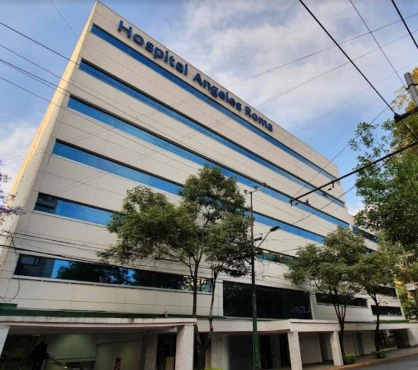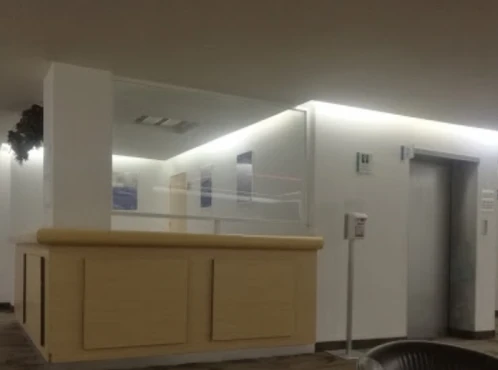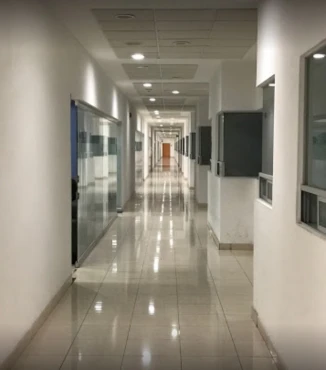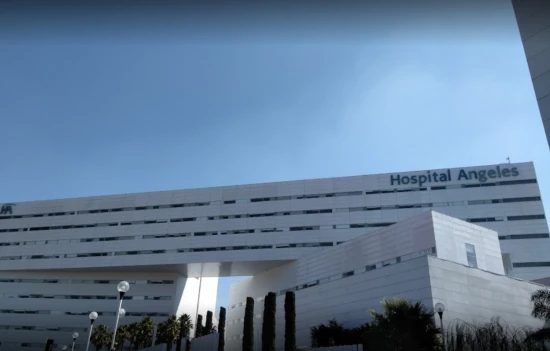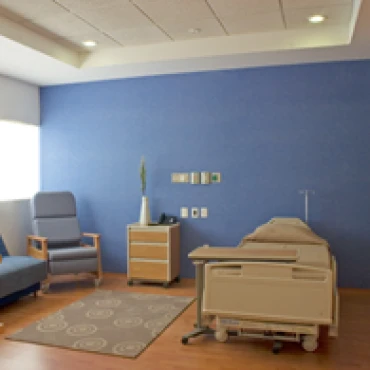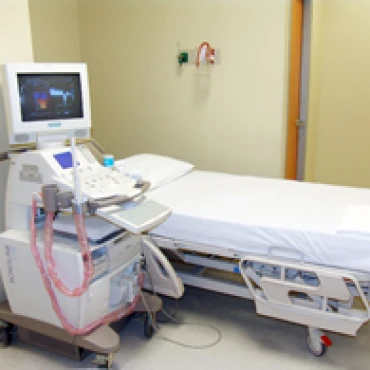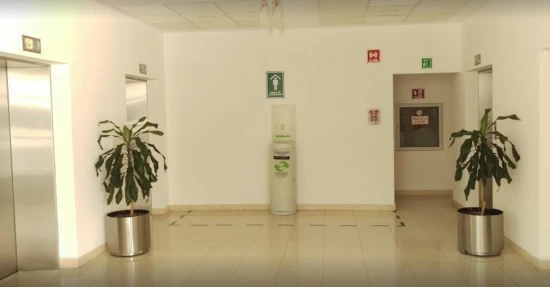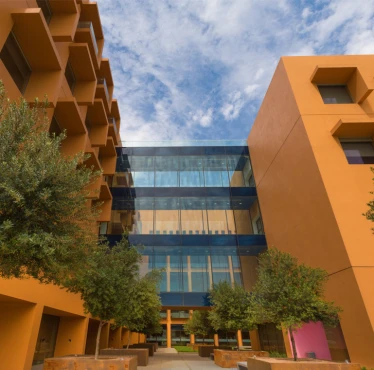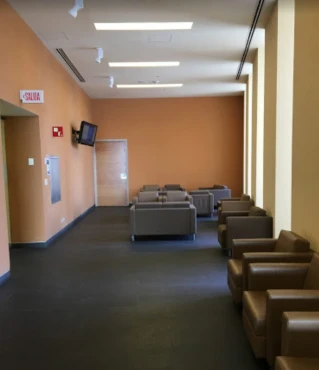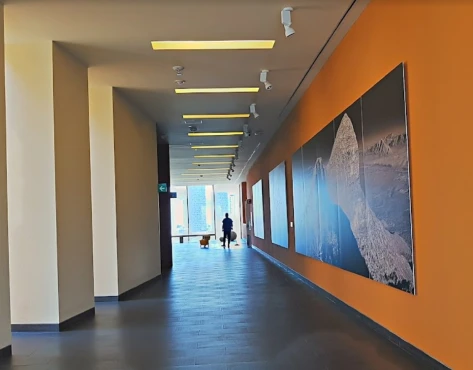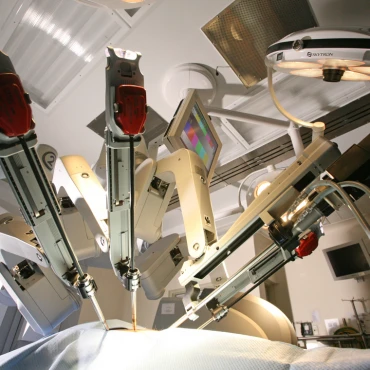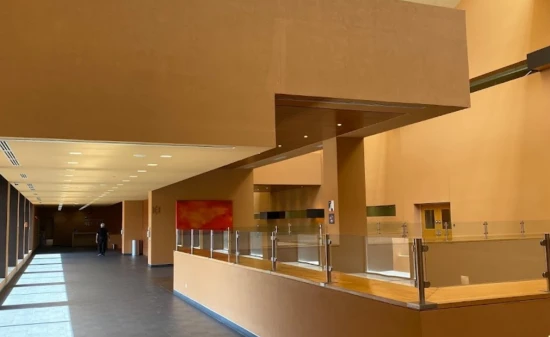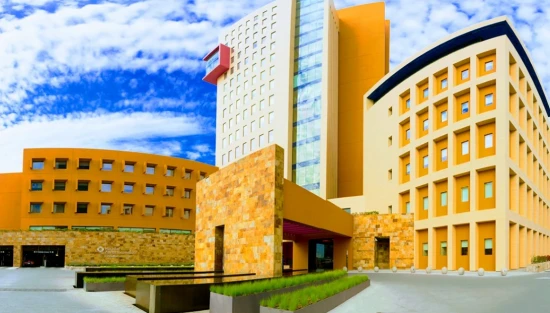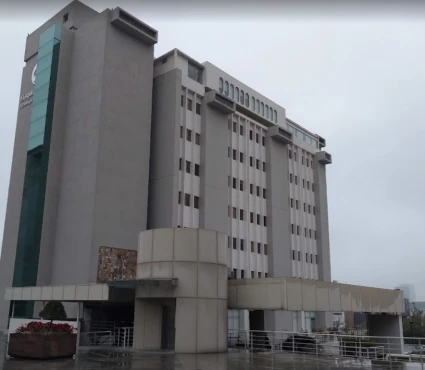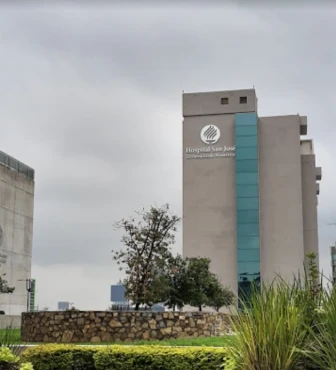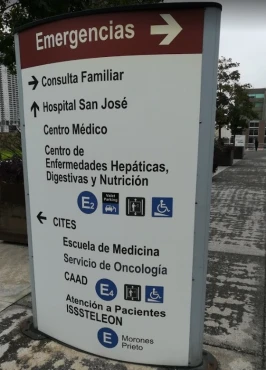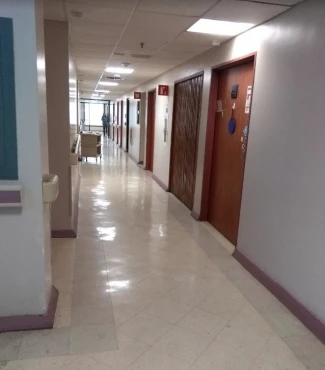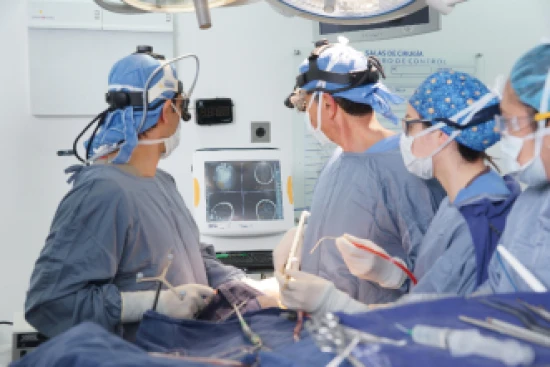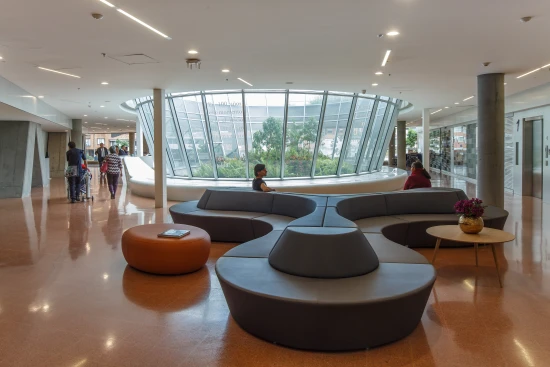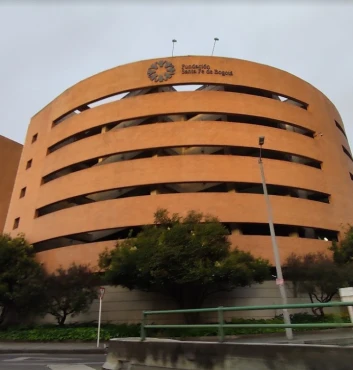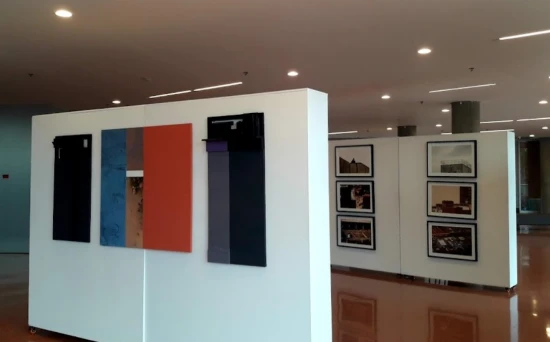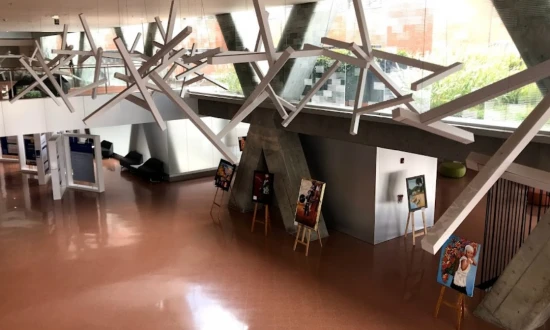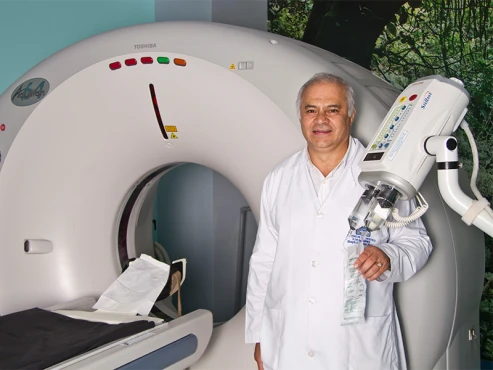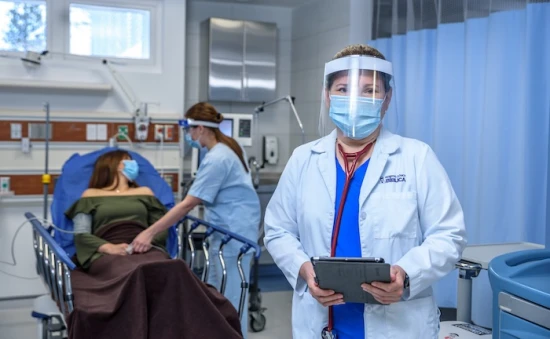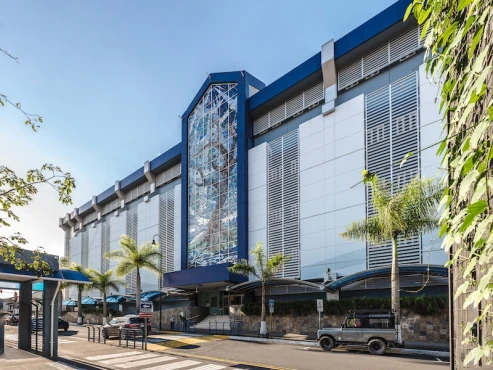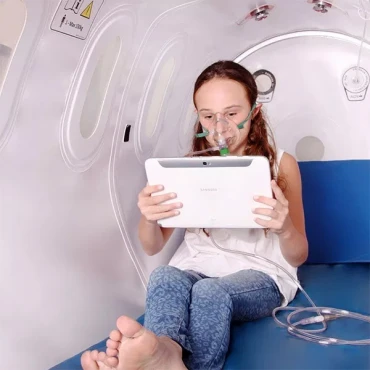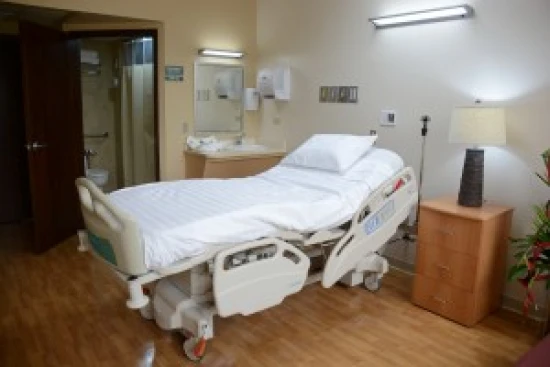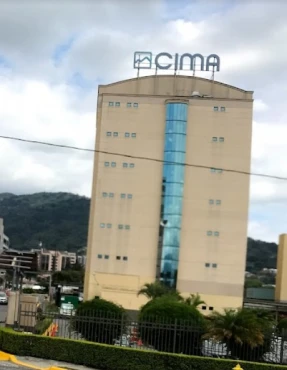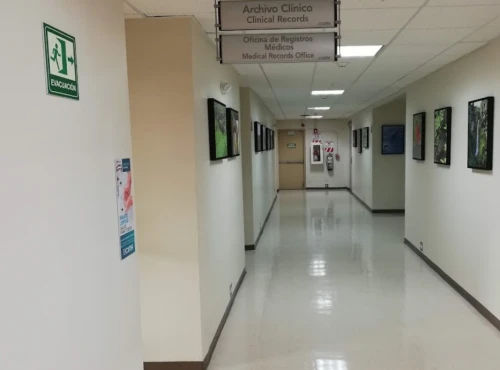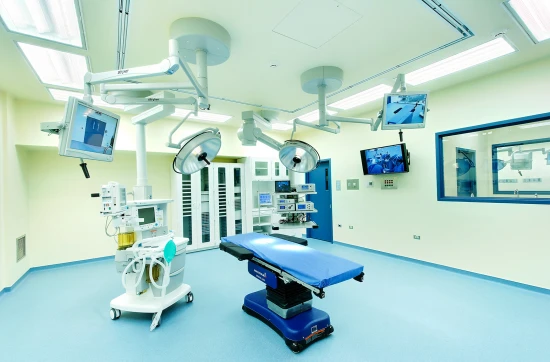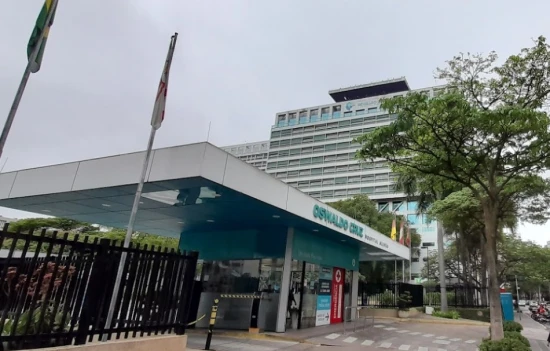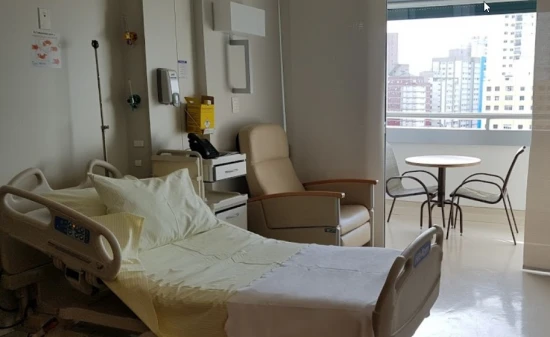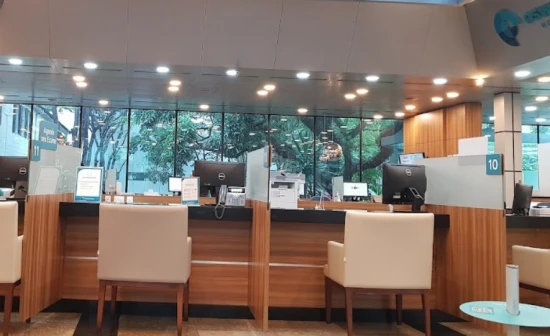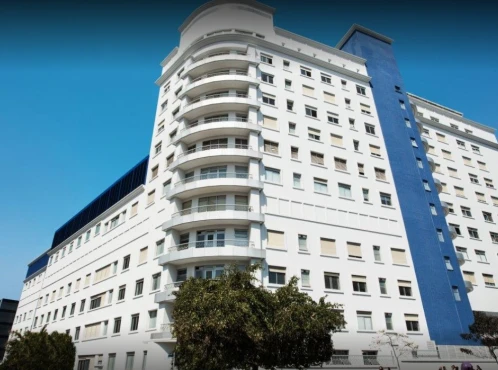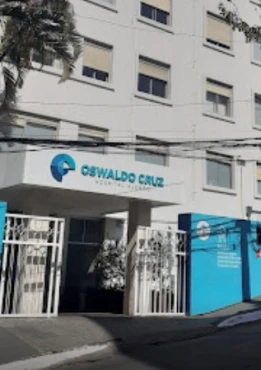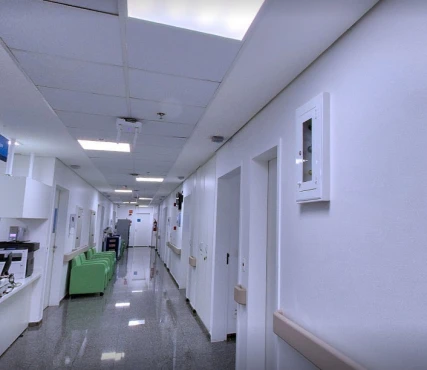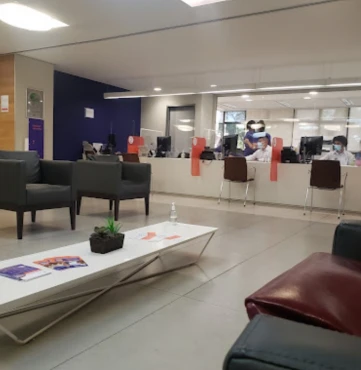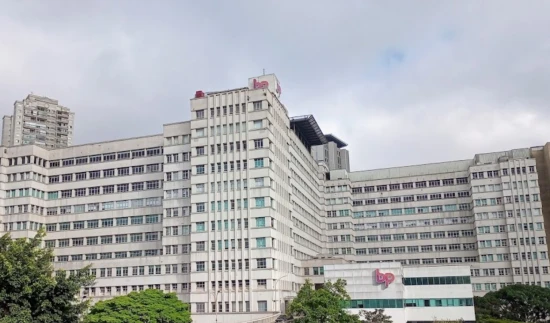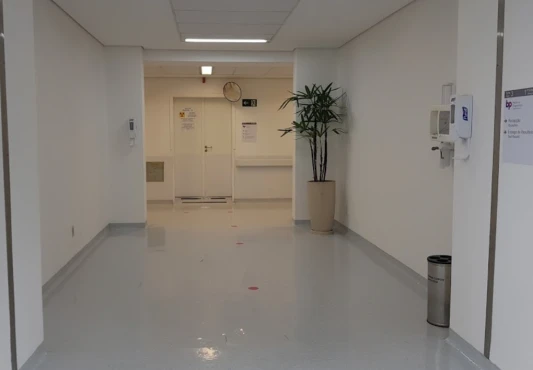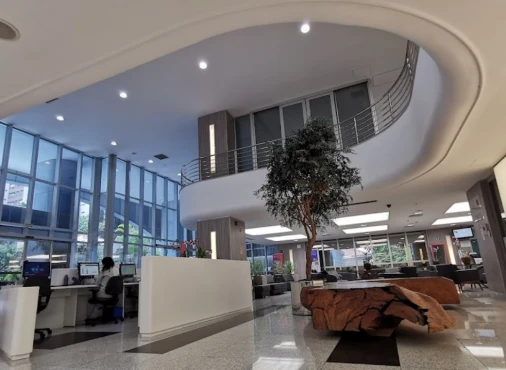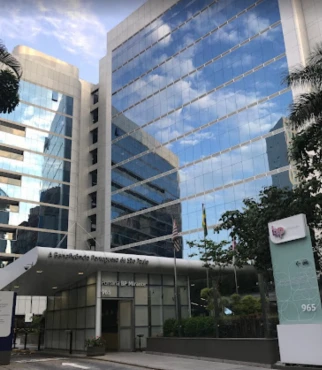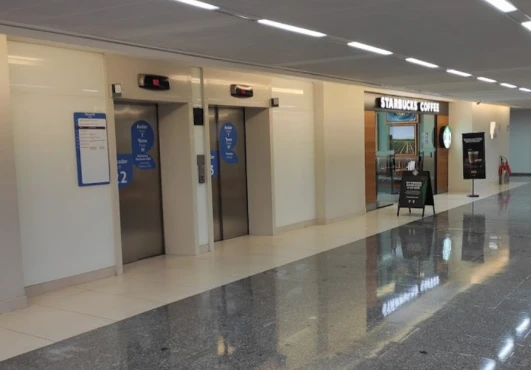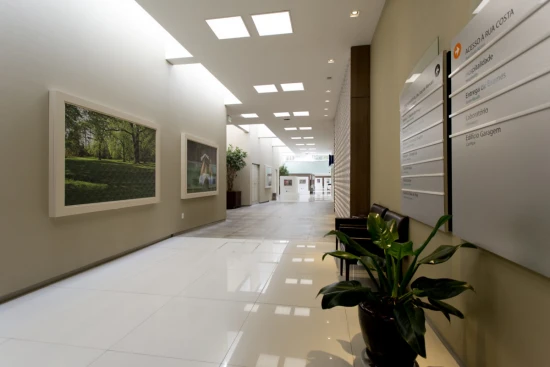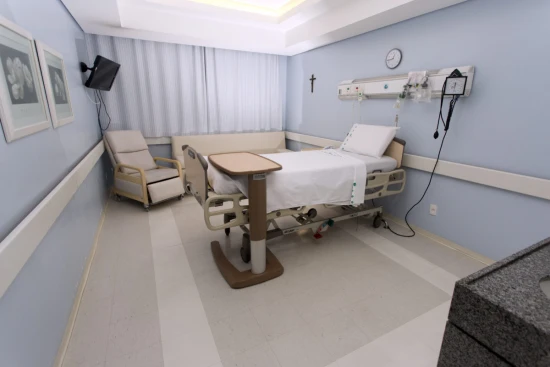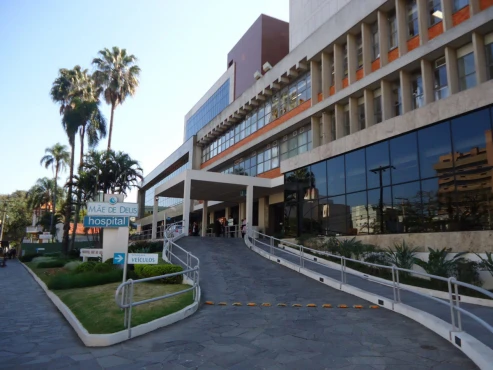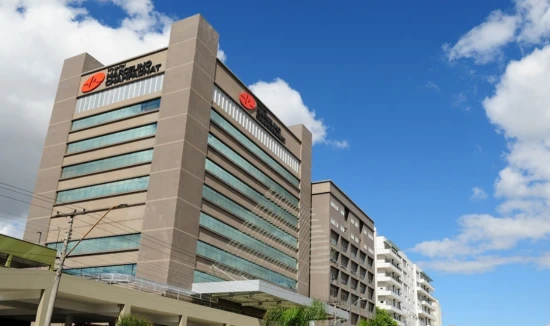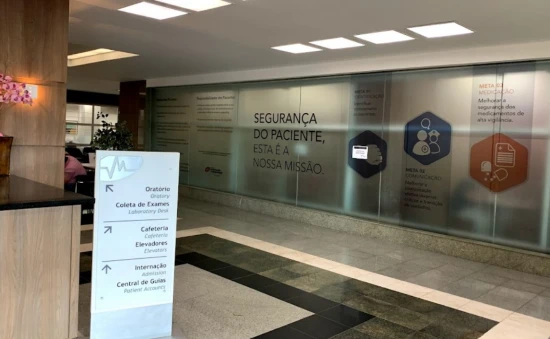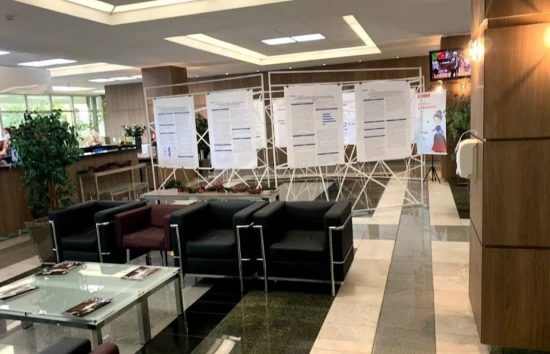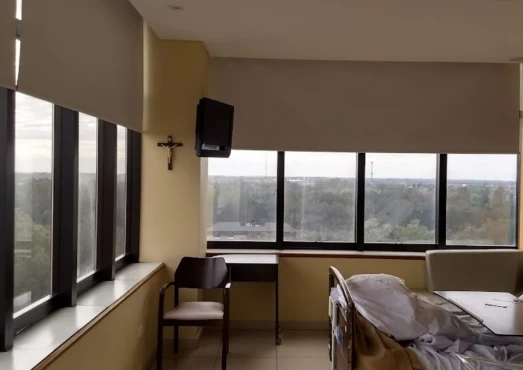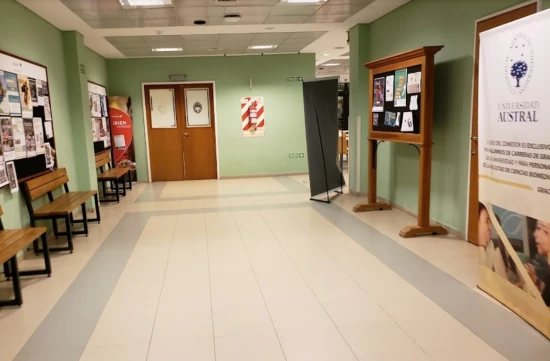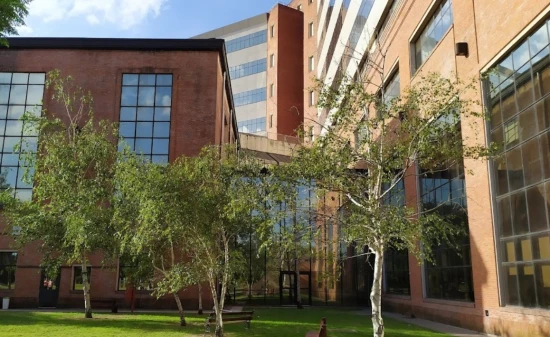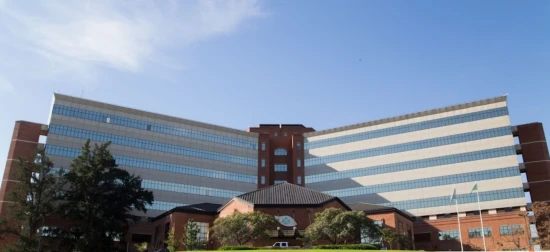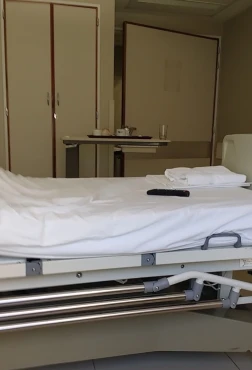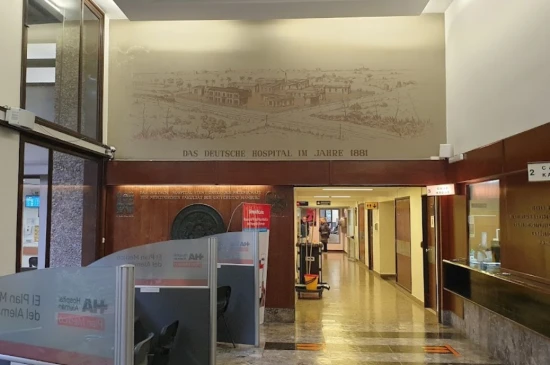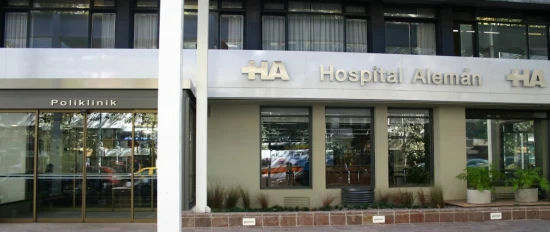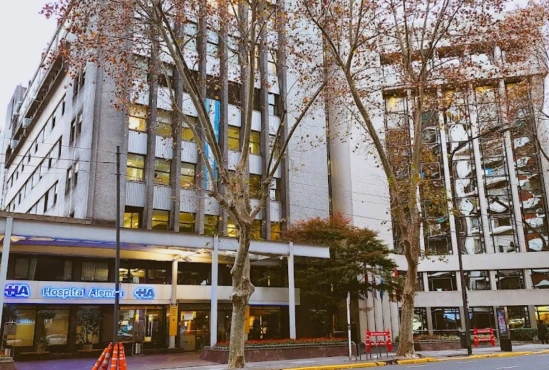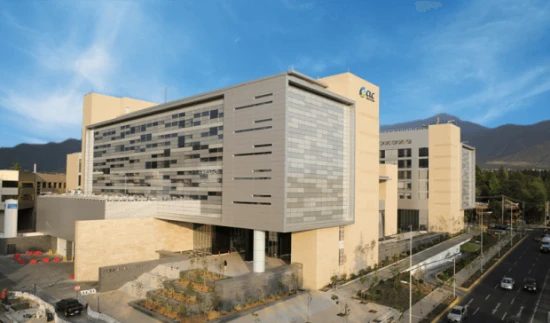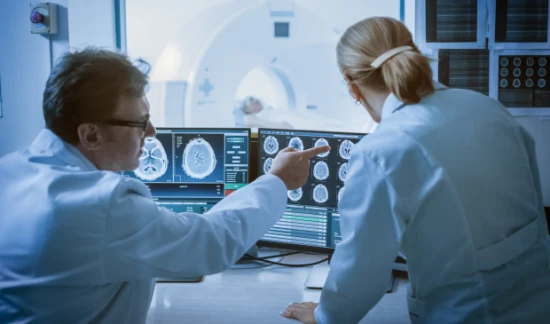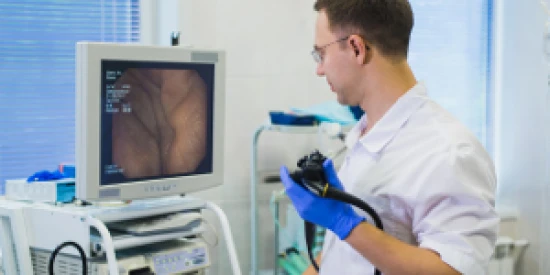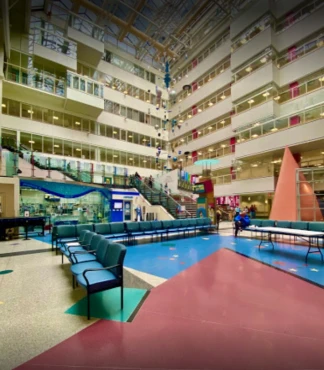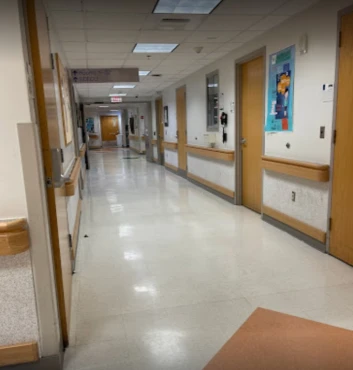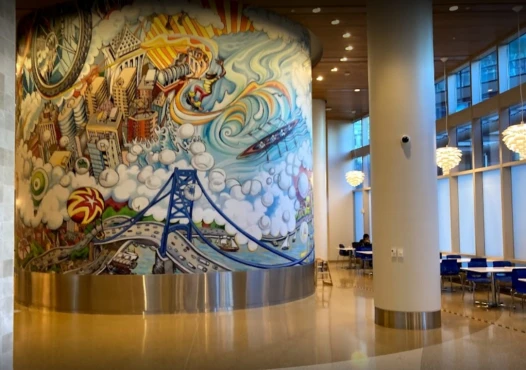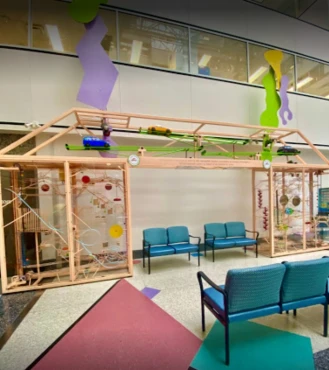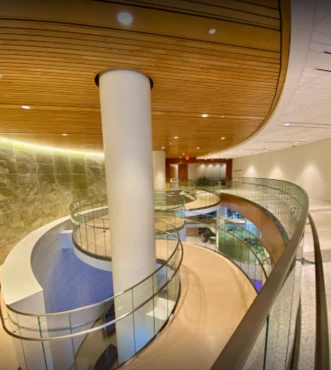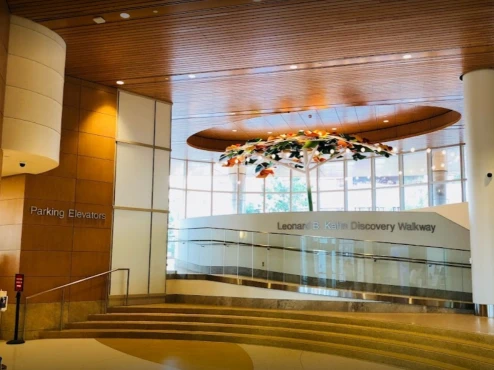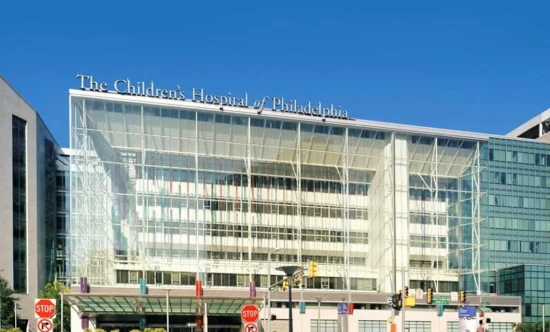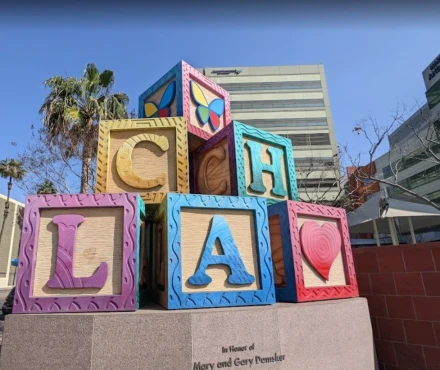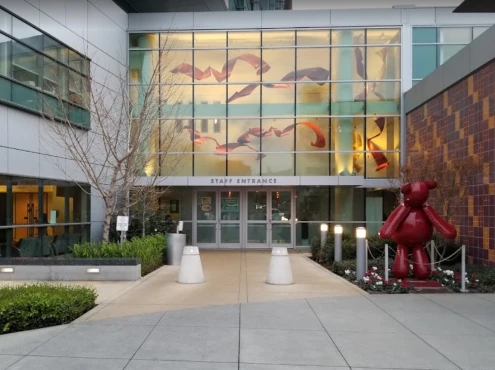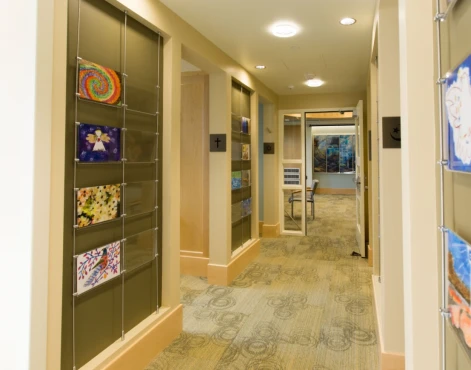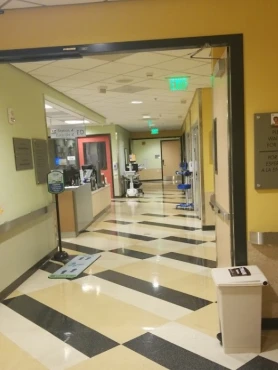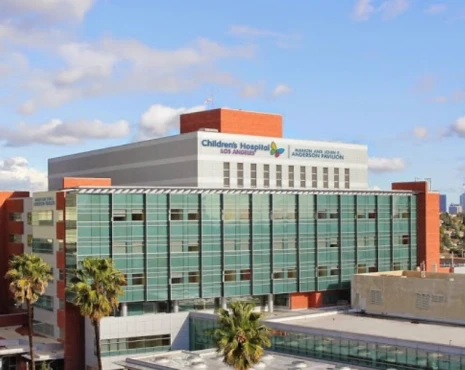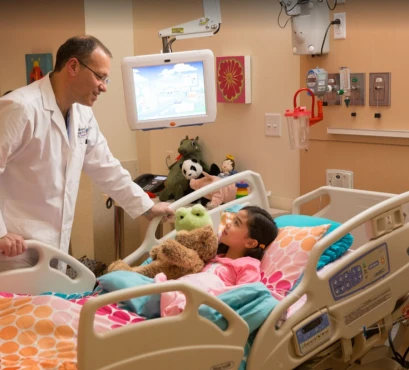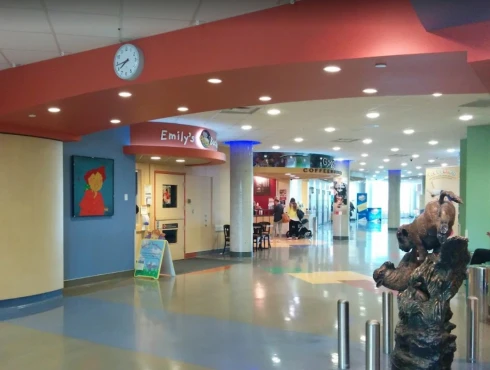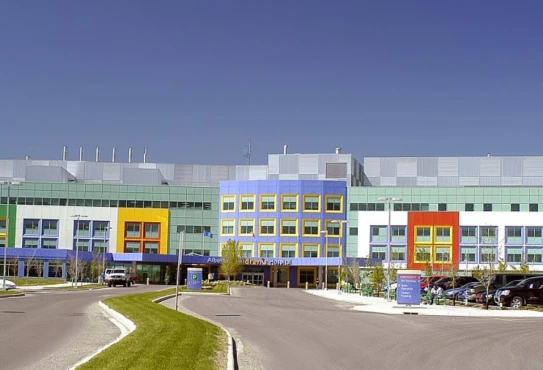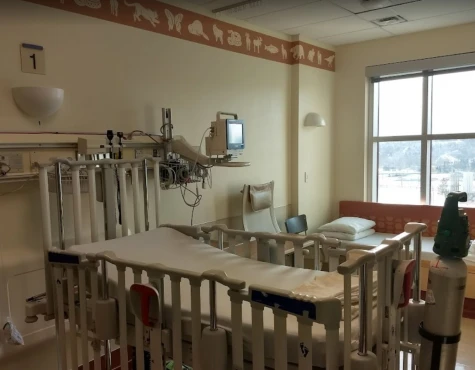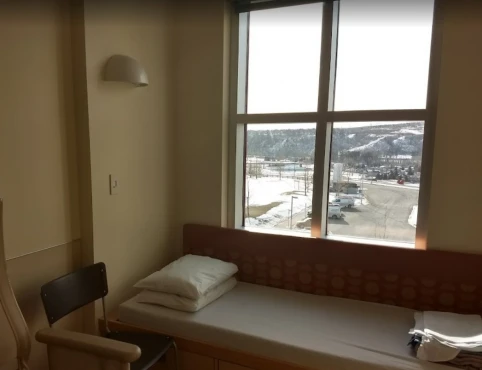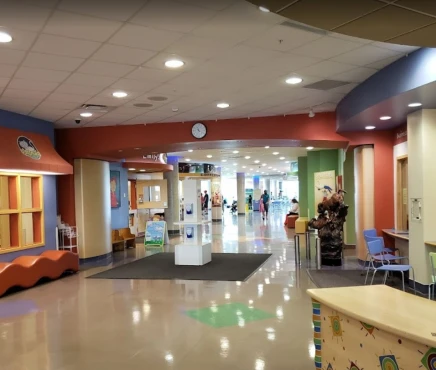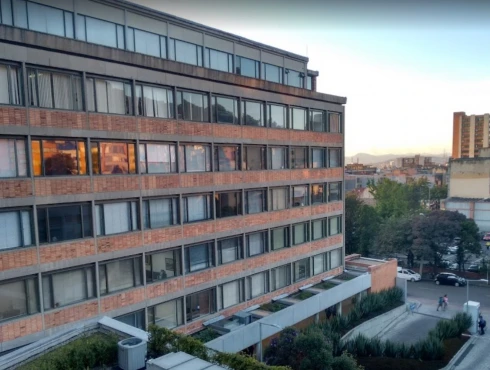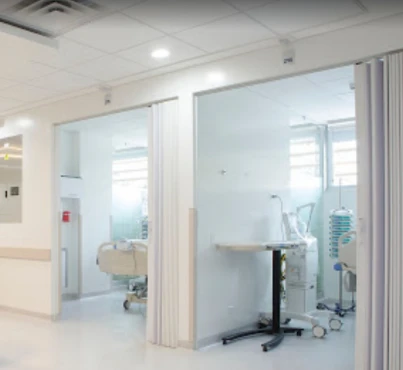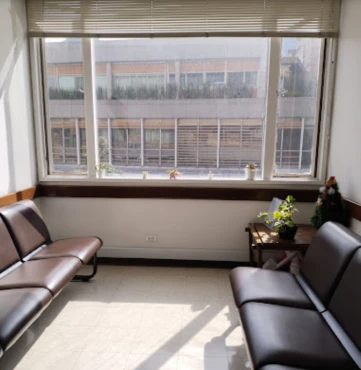Myocardial infarction (MI) treatment in 190 Cardiac surgery clinics in Americas
Top
Clinics
Ratings
Diseases
Quick navigation
190 clinics specializing in Cardiac surgery providing treatment of Myocardial infarction (MI) Myocardial infarction (MI), commonly known as a heart attack, occurs when blood flow to a part of the heart is blocked, leading to the death of heart muscle tissue. It is a medical emergency and requires immediate treatment to restore blood flow and prevent further damage. disease in Americas.
Argentina · 19
Brazil · 47
Canada · 10
Chile · 4
Colombia · 31
Costa Rica · 3
Ecuador · 9
Mexico · 33
Nicaragua · 2
Peru · 5
United States · 26
You can select a specific country
Argentina · 19
Brazil · 47
Canada · 10
Chile · 4
Colombia · 31
Costa Rica · 3
Dominican Republic · 1
Ecuador · 9
Mexico · 33
Nicaragua · 2
Peru · 5
United States · 26
5
from Jacky Marmol
September 06, 2023
The place is large and they have excellent patient care from the beginning to the end of your stay. The hospital has all types of rooms but the one I got was a junior suite and it is very nice.
The truth is that the staff is very attentive and the nurses do their work with pleasant attention, nothing rude and always very polite, the cleaning staff are also very friendly.
5
from Eric West
August 16, 2023
I had no issues, but my doctor helped with registration and with getting an accurate bill. Room was clean, nurses were all responsive, and food was good ( and they were accommodating to my preferences). If my doctor had not helped to smooth the process with registration etc.. I might have had a different experience. They also fixed the medical issue that I had so no complaints from me.
1
from Marcello Gatti
April 07, 2023
Unfortunately the hospital staff seem to have the only goal of making as much money off you as possible, recommending exams and treatments that are not needed or very, very excessive. On top of that, their professional knowledge is so poor I had a X ray technician and a doctor telling me I have a condition by which my organs are on the opposite side of where they should be because they were looking at my X rays flipped the wrong way around. In short avoid if you can!
Prices for popular procedures:
-
Redo heart surgery
≈ $17,495
-
Off-pump coronary artery bypass surgery
≈ $18,524
-
Cardiac catheterization
≈ $2,376
-
Intraaortic balloon pump (IABP) procedure
≈ $2,663
-
Temporary pacemaker implantation
≈ $826
-
Percutaneous coronary intervention (PCI) with angioplasty
≈ $6,165
-
Percutaneous coronary intervention (PCI) with stent insertion
≈ $7,862
-
Dual chamber pacemaker insertion
≈ $7,671
-
Coronary artery bypass graft (CABG)
≈ $24,942
2.8
5 reviews
5
from Jacky Marmol
September 06, 2023
The place is large and they have excellent patient care from the beginning to the end of your stay. The hospital has all types of rooms but the one I got was a junior suite and it is very nice.
The truth is that the staff is very attentive and the nurses do their work with pleasant attention, nothing rude and always very polite, the cleaning staff are also very friendly.
5
from Eric West
August 16, 2023
I had no issues, but my doctor helped with registration and with getting an accurate bill. Room was clean, nurses were all responsive, and food was good ( and they were accommodating to my preferences). If my doctor had not helped to smooth the process with registration etc.. I might have had a different experience. They also fixed the medical issue that I had so no complaints from me.
1
from Marcello Gatti
April 07, 2023
Unfortunately the hospital staff seem to have the only goal of making as much money off you as possible, recommending exams and treatments that are not needed or very, very excessive. On top of that, their professional knowledge is so poor I had a X ray technician and a doctor telling me I have a condition by which my organs are on the opposite side of where they should be because they were looking at my X rays flipped the wrong way around. In short avoid if you can!
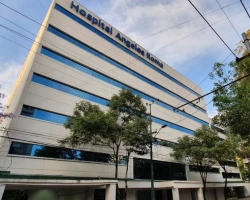
Mexico City, Mexico
Specializations: Cardiac surgery, Vascular surgery, Thoracic surgery, Neurosurgery, Spine surgery, Orthopedic surgery, Oncology
Languages: Spanish; Castilian
1
from Gaby Fabián
November 19, 2023
The attention from the nursing staff left much to be desired, it is supposed to be a first-class hospital for such poor service. Omission of analgesics, failure to follow instructions left in writing by the doctor. They ask about food preferences and allergies so they can ignore them. Violation of patients' rights, even though all staff have them attached to their chests on their identification. Not a cheap bill (>200k) for such bad service.
5
from Aketzally López
August 31, 2023
It is a very clean, beautiful hospital, obviously also in the area, the consultations are a little expensive, but they take great care of you. I fully recommend Doctor David Mazza 🫰🏼
5
from Eva Nemeth-Csoka
July 07, 2023
A modern, clean, well-located and very well-equipped hospital. The rooms are spacious, well-organized and the facilities are of excellent quality. Very large parking lot, the signs in the hallways are very clear, but the staff is also very friendly and helpful, they are happy to help you if you can't find something. At the entrance there is a Starbucks Coffee with fresh and tasty food and on the other side a grocery and drinks store. From the entrance there is a very nice view.
Prices for popular procedures:
-
Redo heart surgery
≈ $17,495
-
Off-pump coronary artery bypass surgery
≈ $18,524
-
Cardiac catheterization
≈ $2,376
-
Intraaortic balloon pump (IABP) procedure
≈ $2,663
-
Temporary pacemaker implantation
≈ $826
-
Dual chamber pacemaker insertion
≈ $7,671
-
Coronary artery bypass graft (CABG)
≈ $24,942
-
Heart valve replacement
≈ $2,668
-
Heart valve repair
≈ $22,607
3.8
5 reviews
1
from Gaby Fabián
November 19, 2023
The attention from the nursing staff left much to be desired, it is supposed to be a first-class hospital for such poor service. Omission of analgesics, failure to follow instructions left in writing by the doctor. They ask about food preferences and allergies so they can ignore them. Violation of patients' rights, even though all staff have them attached to their chests on their identification. Not a cheap bill (>200k) for such bad service.
5
from Aketzally López
August 31, 2023
It is a very clean, beautiful hospital, obviously also in the area, the consultations are a little expensive, but they take great care of you. I fully recommend Doctor David Mazza 🫰🏼
5
from Eva Nemeth-Csoka
July 07, 2023
A modern, clean, well-located and very well-equipped hospital. The rooms are spacious, well-organized and the facilities are of excellent quality. Very large parking lot, the signs in the hallways are very clear, but the staff is also very friendly and helpful, they are happy to help you if you can't find something. At the entrance there is a Starbucks Coffee with fresh and tasty food and on the other side a grocery and drinks store. From the entrance there is a very nice view.
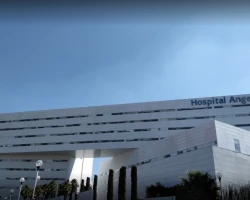
Puebla, Mexico
Specializations: Cardiac surgery, Vascular surgery, Thoracic surgery, Neurosurgery, Spine surgery, Orthopedic surgery, Oncology
1
from Ivan Salgado
September 28, 2023
I tried to set an appointment to see a surgeon. Front desk hang up on me cuz my spanish is not great.
5
from Leopoldo Arias
July 16, 2023
I put five stars just so everyone can see this Dr. Jorge Eugenio Valdez Garcia who works at el Zambrano hellion is doing research with an implant in my eye and he is harassing and threatening to have some one shoot me and has hired someone to stalk me and that person has been breaking in to my truck and has been stealing from me he is trying to scare me they grafted the implant in my eye without my consent and he has been doing research with my eye for several years now!
5
from Gloria Sanchez
January 03, 2023
Great service and awesome doctors, we visited Dr José Ángel Garza Cantu
Prices for popular procedures:
-
Redo heart surgery
≈ $17,788
-
Off-pump coronary artery bypass surgery
≈ $18,835
-
Cardiac catheterization
≈ $2,415
-
Intraaortic balloon pump (IABP) procedure
≈ $2,707
-
Temporary pacemaker implantation
≈ $839
-
Percutaneous coronary intervention (PCI) with angioplasty
≈ $6,268
-
Percutaneous coronary intervention (PCI) with stent insertion
≈ $7,994
-
Dual chamber pacemaker insertion
≈ $7,800
-
Coronary artery bypass graft (CABG)
≈ $25,360
4.1
5 reviews
1
from Ivan Salgado
September 28, 2023
I tried to set an appointment to see a surgeon. Front desk hang up on me cuz my spanish is not great.
5
from Leopoldo Arias
July 16, 2023
I put five stars just so everyone can see this Dr. Jorge Eugenio Valdez Garcia who works at el Zambrano hellion is doing research with an implant in my eye and he is harassing and threatening to have some one shoot me and has hired someone to stalk me and that person has been breaking in to my truck and has been stealing from me he is trying to scare me they grafted the implant in my eye without my consent and he has been doing research with my eye for several years now!
5
from Gloria Sanchez
January 03, 2023
Great service and awesome doctors, we visited Dr José Ángel Garza Cantu
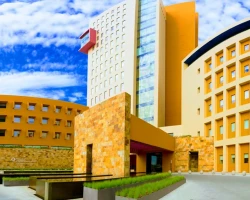
San Pedro Garza Garcia, Mexico
Specializations: Cardiac surgery, Vascular surgery, Thoracic surgery, Neurosurgery, Spine surgery, Orthopedic surgery, Oncology
The Zambrano Hellion Hospital provides specialization and cutting-edge hospital care with a new level for health care, it has comprehensive programs and specialized centers in
read more
4
from Irma del Carmen García Almaguer
July 13, 2023
What a shame that in a Hospital like San José you cannot buy a catheter and emergency medicine at the Pharmacy. As a town pharmacy, it was closed at midday because the person in charge “went out to eat.” AND THERE WAS NO ONE TO ATTEND. And the people I asked saw everything as very logical… “he went out to eat and was probably late.” How little brains. A Pharmacy in a hospital in broad daylight must be open so it is a good idea to have another person stay to serve while someone else goes out to eat. It really took a long time and I had to go look somewhere else (CUAN) because the medicine and the tube were URGENT.
4
from flynn “the drummer” swanwick
October 24, 2021
woke up there after a slosh of a sesh, now missing my left nut, right kidney and both my big toes and pinky toes. i have no ballence now
5
from Tonnis Nieboer
November 23, 2018
Best hospital in the world!!
Prices for popular procedures:
-
Redo heart surgery
≈ $17,788
-
Off-pump coronary artery bypass surgery
≈ $18,835
-
Cardiac catheterization
≈ $2,415
-
Intraaortic balloon pump (IABP) procedure
≈ $2,707
-
Temporary pacemaker implantation
≈ $839
-
Percutaneous coronary intervention (PCI) with angioplasty
≈ $6,268
-
Percutaneous coronary intervention (PCI) with stent insertion
≈ $7,994
-
Dual chamber pacemaker insertion
≈ $7,800
-
Coronary artery bypass graft (CABG)
≈ $25,360
4.2
5 reviews
4
from Irma del Carmen García Almaguer
July 13, 2023
What a shame that in a Hospital like San José you cannot buy a catheter and emergency medicine at the Pharmacy. As a town pharmacy, it was closed at midday because the person in charge “went out to eat.” AND THERE WAS NO ONE TO ATTEND. And the people I asked saw everything as very logical… “he went out to eat and was probably late.” How little brains. A Pharmacy in a hospital in broad daylight must be open so it is a good idea to have another person stay to serve while someone else goes out to eat. It really took a long time and I had to go look somewhere else (CUAN) because the medicine and the tube were URGENT.
4
from flynn “the drummer” swanwick
October 24, 2021
woke up there after a slosh of a sesh, now missing my left nut, right kidney and both my big toes and pinky toes. i have no ballence now
5
from Tonnis Nieboer
November 23, 2018
Best hospital in the world!!
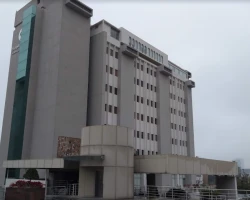
Mexico City, Mexico
Specializations: Cardiac surgery, Vascular surgery, Thoracic surgery, Neurosurgery, Spine surgery, Orthopedic surgery, Oncology
Hospital San José is the hospital committed to medical innovation, which integrates health professionals, pioneers and experts, dedicated to caring for health for more than
read more
3
from Maca Acuña Olmos
November 27, 2023
5
from Ernesto Francesa
April 06, 2023
of the best clinics in Bogotá.
5
from ruben dario rodriguez losada
April 26, 2019
Design and sophistication for the Health of Colombians!!!
Prices for popular procedures:
-
Redo heart surgery
≈ $17,649
-
Off-pump coronary artery bypass surgery
≈ $13,752
-
Percutaneous coronary intervention (PCI) with angioplasty
≈ $7,753
-
Percutaneous coronary intervention (PCI) with stent insertion
≈ $7,579
-
Coronary artery bypass graft (CABG)
≈ $13,176
-
Heart valve replacement
≈ $12,955
-
Heart valve repair
≈ $17,019
-
Aortic valve replacement (AVR)
≈ $30,568
-
Mitral valve replacement (MVR)
≈ $22,011
4.3
3 reviews
3
from Maca Acuña Olmos
November 27, 2023
5
from Ernesto Francesa
April 06, 2023
of the best clinics in Bogotá.
5
from ruben dario rodriguez losada
April 26, 2019
Design and sophistication for the Health of Colombians!!!
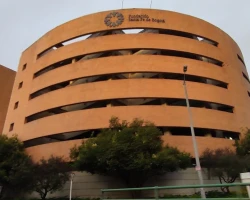
Bogota, Colombia
Specializations: Cardiac surgery, Vascular surgery, Thoracic surgery, Neurosurgery, Spine surgery, Orthopedic surgery, Oncology
Languages: English, Spanish; Castilian
Fundación Santa Fe de Bogotá is a private social organization that works to be a leader and positive influencer in the health sector and to
read more
5
from Jaime Bondoza
November 07, 2023
man haha if you ever need to get surgery all of the sudden while completely tripping balls, it wont be the funnest experience of your life or anything but at least my nearly severed limbs work again 1500$ later. thanks docs and nurses!
5
from K Cannon
September 08, 2023
The Intensive Care staff brought me back to life. Dr. Sanchez is a miracle worker. The staffing were so thorough and attentive. A+ rating.
1
from SLOAN PROJECTS
June 30, 2023
I would not go to this hospital under any circumstances, especially if you are a foreigner and the hospital may have the impression that you have money. There are better hospitals where you are more likely to be treated humanely and fairly, such as Catholica Hospital. My father went into Clinica Biblica to be treated for dehydration, and within a week he was in a coma and had a stroke. I believe wholeheartedly that several members of their medical staff prolonged an agonizing course of surgeries and treatments simply in order to make a profit off of a dying man. It was heart wrenching and traumatizing. I wanted desperately to move him to a public hospital where his health insurance would cover the costs, and Biblica would not release him, causing our medical bills to increase dramatically by the day. Ultimately, my father did not make it, and the hospital would never explain what happened. Why was he admitted to be treated for dehydration and ended up on his death bed. Also, you should know that Costa Rican people are generally some of the best, kindest people on the planet, however, there is a machismo that is inescapable. The male doctors spoke down to my sisters and I in the most awfully condescending way I have ever experienced. If you have a serious medical issue, I implore you - go anywhere else but here. They are all about money and will take advantage of your need for care. Beware.
Prices for popular procedures:
-
Redo heart surgery
≈ $17,086
-
Off-pump coronary artery bypass surgery
≈ $27,283
-
Cardiac catheterization
≈ $3,176
-
Intraaortic balloon pump (IABP) procedure
≈ $3,499
-
Temporary pacemaker implantation
≈ $753
-
Percutaneous coronary intervention (PCI) with angioplasty
≈ $6,195
-
Percutaneous coronary intervention (PCI) with stent insertion
≈ $8,750
-
Dual chamber pacemaker insertion
≈ $9,511
-
Coronary artery bypass graft (CABG)
≈ $21,714
3.7
5 reviews
5
from Jaime Bondoza
November 07, 2023
man haha if you ever need to get surgery all of the sudden while completely tripping balls, it wont be the funnest experience of your life or anything but at least my nearly severed limbs work again 1500$ later. thanks docs and nurses!
5
from K Cannon
September 08, 2023
The Intensive Care staff brought me back to life. Dr. Sanchez is a miracle worker. The staffing were so thorough and attentive. A+ rating.
1
from SLOAN PROJECTS
June 30, 2023
I would not go to this hospital under any circumstances, especially if you are a foreigner and the hospital may have the impression that you have money. There are better hospitals where you are more likely to be treated humanely and fairly, such as Catholica Hospital. My father went into Clinica Biblica to be treated for dehydration, and within a week he was in a coma and had a stroke. I believe wholeheartedly that several members of their medical staff prolonged an agonizing course of surgeries and treatments simply in order to make a profit off of a dying man. It was heart wrenching and traumatizing. I wanted desperately to move him to a public hospital where his health insurance would cover the costs, and Biblica would not release him, causing our medical bills to increase dramatically by the day. Ultimately, my father did not make it, and the hospital would never explain what happened. Why was he admitted to be treated for dehydration and ended up on his death bed. Also, you should know that Costa Rican people are generally some of the best, kindest people on the planet, however, there is a machismo that is inescapable. The male doctors spoke down to my sisters and I in the most awfully condescending way I have ever experienced. If you have a serious medical issue, I implore you - go anywhere else but here. They are all about money and will take advantage of your need for care. Beware.
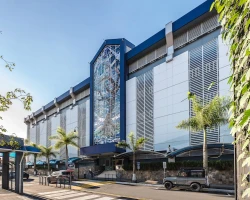
San José, Costa Rica
Specializations: Cardiac surgery, Vascular surgery, Thoracic surgery, Neurosurgery, Spine surgery, Orthopedic surgery, Oncology
In an effort to offer our clients the best services of a medical team using technology of the highest quality, the Clínica Bíblica Hospital provides
read more
1
from Nadia Millan
November 03, 2023
Bad Experience
I had an unfortunate experience when I accompanied my boyfriend to the emergency room. Upon our arrival, I couldn't help but notice that the staff at the cashier's desk were engrossed in conversations about their personal lives, as if they were attending a social gathering rather than attending to the needs of the waiting patients, many of whom were feeling unwell. This lack of professionalism was disheartening.
Subsequently, we proceeded to the consultation, hoping for a resolution to my boyfriend's health issue. Unfortunately, not only did they fail to address the problem effectively, but they also took an extensive amount of time dealing with the paperwork related to our health insurance. This bureaucratic delay was frustrating, especially considering that my boyfriend was still feeling terrible after over an hour of waiting.
To make matters worse, we were unexpectedly presented with a bill amounting to nearly 400 dollars. Given the exorbitant cost, we were disheartened to realize that we still had no concrete diagnosis. The doctor merely provided us with the name of a specialist, leaving us feeling dissatisfied with the level of care provided. It is disheartening to conclude that this hospital seems to prioritize profit over patient well-being.
5
from Pedro Martinez
November 03, 2023
Private hospital, hete you can find all medical specialties prices range between $85 to $120 for dovtor visit. ER visit costs under $100. The hospital has all types of diagnostics equipment.
5
from Amy Parsons
October 30, 2023
I visited the emergency room. It was my first time at CIMA. I was seen quickly and received thorough testing and care. All of the staff were kind and patient. They were even kind with my limited Spanish and never made me feel bad for not speaking Spanish well. The ER doctor was especially kind, listened well, and explained his thoughts and reasoning thoroughly. He was also patient when i struggled to remember medical history in the moment. He was easily one of the best doctors I have ever seen. All of the staff was wonderful.
Prices for popular procedures:
-
Redo heart surgery
≈ $17,086
-
Off-pump coronary artery bypass surgery
≈ $27,283
-
Cardiac catheterization
≈ $3,176
-
Intraaortic balloon pump (IABP) procedure
≈ $3,499
-
Temporary pacemaker implantation
≈ $753
-
Dual chamber pacemaker insertion
≈ $9,511
-
Coronary artery bypass graft (CABG)
≈ $21,714
-
Heart valve replacement
≈ $23,152
-
Heart valve repair
≈ $28,426
3.5
5 reviews
1
from Nadia Millan
November 03, 2023
Bad Experience
I had an unfortunate experience when I accompanied my boyfriend to the emergency room. Upon our arrival, I couldn't help but notice that the staff at the cashier's desk were engrossed in conversations about their personal lives, as if they were attending a social gathering rather than attending to the needs of the waiting patients, many of whom were feeling unwell. This lack of professionalism was disheartening.
Subsequently, we proceeded to the consultation, hoping for a resolution to my boyfriend's health issue. Unfortunately, not only did they fail to address the problem effectively, but they also took an extensive amount of time dealing with the paperwork related to our health insurance. This bureaucratic delay was frustrating, especially considering that my boyfriend was still feeling terrible after over an hour of waiting.
To make matters worse, we were unexpectedly presented with a bill amounting to nearly 400 dollars. Given the exorbitant cost, we were disheartened to realize that we still had no concrete diagnosis. The doctor merely provided us with the name of a specialist, leaving us feeling dissatisfied with the level of care provided. It is disheartening to conclude that this hospital seems to prioritize profit over patient well-being.
5
from Pedro Martinez
November 03, 2023
Private hospital, hete you can find all medical specialties prices range between $85 to $120 for dovtor visit. ER visit costs under $100. The hospital has all types of diagnostics equipment.
5
from Amy Parsons
October 30, 2023
I visited the emergency room. It was my first time at CIMA. I was seen quickly and received thorough testing and care. All of the staff were kind and patient. They were even kind with my limited Spanish and never made me feel bad for not speaking Spanish well. The ER doctor was especially kind, listened well, and explained his thoughts and reasoning thoroughly. He was also patient when i struggled to remember medical history in the moment. He was easily one of the best doctors I have ever seen. All of the staff was wonderful.
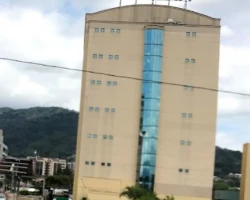
San José, Costa Rica
Specializations: Cardiac surgery, Vascular surgery, Thoracic surgery, Neurosurgery, Spine surgery, Orthopedic surgery, Oncology
Languages: Chinese, English, French, Italian, Japanese, Polish, Portuguese, Russian, German, Spanish; Castilian
Hospital CIMA brings accessible and affordable healthcare to the global market with top tier-talent and a focus on your needs. Hospital CIMA San José is
read more
5
from João Amaral
October 21, 2023
Huge hospital with many specialties, including non-invasive cardiology, urology, oncology, orthopedics, among others. It is well located in the city of São Paulo, close to Vergueiro station. There are two other hospitals close by, including the BP hospital.
5
from Nelson Yutaka Hamada Hamada
September 20, 2023
Top
1
from Esdras Liu
March 22, 2022
I have been here several times, but today seems to be the time that this hospital's ER is the least prepared. Having passed through covid season peak now the hospital seems not being able to cope with the current influenza surge. The expected waiting time for a clinic evaluation, not considering possible needed exams or medications is of 4 hours! Seems that there is no medical staff at all right now. However the nursing and administrative staff are whatever possible. Hope somehow they can cope better with this seasonal flu...
Prices for popular procedures:
-
Redo heart surgery
≈ $5,366
-
Off-pump coronary artery bypass surgery
≈ $9,151
-
Temporary pacemaker implantation
≈ $488
-
Percutaneous coronary intervention (PCI) with angioplasty
≈ $3,852
-
Percutaneous coronary intervention (PCI) with stent insertion
≈ $3,481
-
Dual chamber pacemaker insertion
≈ $4,233
-
Coronary artery bypass graft (CABG)
≈ $7,955
-
Heart valve replacement
≈ $8,041
-
Heart valve repair
≈ $8,479
3.7
5 reviews
5
from João Amaral
October 21, 2023
Huge hospital with many specialties, including non-invasive cardiology, urology, oncology, orthopedics, among others. It is well located in the city of São Paulo, close to Vergueiro station. There are two other hospitals close by, including the BP hospital.
5
from Nelson Yutaka Hamada Hamada
September 20, 2023
Top
1
from Esdras Liu
March 22, 2022
I have been here several times, but today seems to be the time that this hospital's ER is the least prepared. Having passed through covid season peak now the hospital seems not being able to cope with the current influenza surge. The expected waiting time for a clinic evaluation, not considering possible needed exams or medications is of 4 hours! Seems that there is no medical staff at all right now. However the nursing and administrative staff are whatever possible. Hope somehow they can cope better with this seasonal flu...
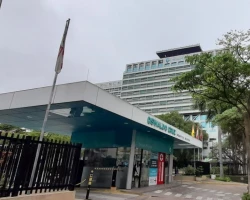
São Paulo, Brazil
Specializations: Cardiac surgery, Vascular surgery, Thoracic surgery, Neurosurgery, Spine surgery, Orthopedic surgery, Oncology
Languages: English
With over a century of existence, the Oswaldo Cruz German Hospital was founded in 1897 and holds a position as one of the most recognized
read more
3
from Renata Bayer
November 25, 2023
I was at the Oswaldo Cruz Vergueiro unit on 11/24/23 at 8 pm. The service was for my mother and it was reasonable, however I witnessed the arrival of a girl with an injury to her head. The family in panic with the girl on their lap. The security guard and triage nurse were so quick that I didn't even see where they came from. The medical team was also quick and I saw the stabilized girl being taken to the upper floors. Of all this, what caused surprise was the apathy of the receptionists. They didn't help at all. Not even the family seeing the issue of documents to open the file. Even the nurse on duty was irritated with the receptionists. There was a lack of empathy, there was a lack of humanity in the service. Reception grade zero. Security and medical team, grade 1000
1
from Andrew Maltes
October 27, 2023
This hospital it’s unclean and the service are very bad we was waiting over 8 hours just to see the doctor
1
from Andre Marcon
October 26, 2023
Hospital increasingly abandoned. Bad mood from reception to service floor. Doctor, thank God, he treats me well. Dr Alexander. So abandoned that there's no one to even pick up the token... 🤦🏻 (3rd floor) Sadly.
Prices for popular procedures:
-
Redo heart surgery
≈ $5,366
-
Off-pump coronary artery bypass surgery
≈ $9,151
-
Temporary pacemaker implantation
≈ $488
-
Percutaneous coronary intervention (PCI) with angioplasty
≈ $3,852
-
Percutaneous coronary intervention (PCI) with stent insertion
≈ $3,481
-
Dual chamber pacemaker insertion
≈ $4,233
-
Coronary artery bypass graft (CABG)
≈ $7,955
-
Heart valve replacement
≈ $8,041
-
Heart valve repair
≈ $8,479
3.4
5 reviews
3
from Renata Bayer
November 25, 2023
I was at the Oswaldo Cruz Vergueiro unit on 11/24/23 at 8 pm. The service was for my mother and it was reasonable, however I witnessed the arrival of a girl with an injury to her head. The family in panic with the girl on their lap. The security guard and triage nurse were so quick that I didn't even see where they came from. The medical team was also quick and I saw the stabilized girl being taken to the upper floors. Of all this, what caused surprise was the apathy of the receptionists. They didn't help at all. Not even the family seeing the issue of documents to open the file. Even the nurse on duty was irritated with the receptionists. There was a lack of empathy, there was a lack of humanity in the service. Reception grade zero. Security and medical team, grade 1000
1
from Andrew Maltes
October 27, 2023
This hospital it’s unclean and the service are very bad we was waiting over 8 hours just to see the doctor
1
from Andre Marcon
October 26, 2023
Hospital increasingly abandoned. Bad mood from reception to service floor. Doctor, thank God, he treats me well. Dr Alexander. So abandoned that there's no one to even pick up the token... 🤦🏻 (3rd floor) Sadly.
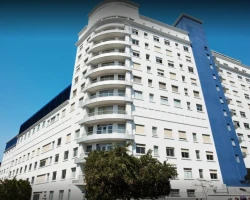
São Paulo, Brazil
Specializations: Cardiac surgery, Vascular surgery, Thoracic surgery, Neurosurgery, Spine surgery, Orthopedic surgery, Oncology
With integrated care from the moment of admission to the surgical procedures, in more than 20 specialties, Hospital Vergueiro offers quality treatments, with resolute
read more
5
from Mario Pereira
December 02, 2023
It is an excellent hospital, well located and with a wonderful team. We are always very well attended to, they give us quick solutions with zero bureaucracy. I have been a patient for 4 years and the service is always of the same standard. Whenever I feel something or go straight to this hospital 🏥. It has a restaurant, cafes, 24-hour bank and valet.
2
from Andre Moraes
November 29, 2023
Considered top level. The prompt service leaves a lot to be desired. I passed on 25/Nov/23. In pain, the medical team only did a urine test. When the doctor came to talk, she had to consult a urologist with my request for medication, as I was in pain. In short, an US or CT scan would solve the problem and be accurate. But I had to go to another hospital to find out. BP Mirante for emergency care is too weak.
1
from Beatriz Galvão
November 14, 2023
IS A PREMIUM?!?! JOKE!!
Yesterday I was in the ER and I was outraged by the lack of structure and commitment to the patient.
Only 1 attendant to open a form, 1 person doing the triage, 2 doctors attending all Emergency Rooms, patients being placed in common chairs to be medicated, only 1 nursing assistant to apply all the patients' medications and mismatched information.
I thought that the fact that Mirante has premium service would never be served in this way.
The doctor who attended to me prescribed the same medications I was taking at home, did he think I liked going to the ER for a walk?
While I was in the medication room, I asked the person responsible for the PS, and nurse Bruna came to assist me.
I informed him what was happening and he immediately took action. He transferred my care to a surgeon to analyze me, transferred me to a private place to receive the new prescribed medications, in short, he did everything possible to make my impression change.
The problem is that I wouldn't have needed to complain to receive the service that should have been offered.
I was extremely disappointed with BP Mirante, as it was not what I expected for this service.
Prices for popular procedures:
-
Redo heart surgery
≈ $5,366
-
Off-pump coronary artery bypass surgery
≈ $9,151
-
Temporary pacemaker implantation
≈ $488
-
Percutaneous coronary intervention (PCI) with angioplasty
≈ $3,852
-
Percutaneous coronary intervention (PCI) with stent insertion
≈ $3,481
-
Dual chamber pacemaker insertion
≈ $4,233
-
Coronary artery bypass graft (CABG)
≈ $7,955
-
Heart valve replacement
≈ $8,041
-
Heart valve repair
≈ $8,479
3.9
5 reviews
5
from Mario Pereira
December 02, 2023
It is an excellent hospital, well located and with a wonderful team. We are always very well attended to, they give us quick solutions with zero bureaucracy. I have been a patient for 4 years and the service is always of the same standard. Whenever I feel something or go straight to this hospital 🏥. It has a restaurant, cafes, 24-hour bank and valet.
2
from Andre Moraes
November 29, 2023
Considered top level. The prompt service leaves a lot to be desired. I passed on 25/Nov/23. In pain, the medical team only did a urine test. When the doctor came to talk, she had to consult a urologist with my request for medication, as I was in pain. In short, an US or CT scan would solve the problem and be accurate. But I had to go to another hospital to find out. BP Mirante for emergency care is too weak.
1
from Beatriz Galvão
November 14, 2023
IS A PREMIUM?!?! JOKE!!
Yesterday I was in the ER and I was outraged by the lack of structure and commitment to the patient.
Only 1 attendant to open a form, 1 person doing the triage, 2 doctors attending all Emergency Rooms, patients being placed in common chairs to be medicated, only 1 nursing assistant to apply all the patients' medications and mismatched information.
I thought that the fact that Mirante has premium service would never be served in this way.
The doctor who attended to me prescribed the same medications I was taking at home, did he think I liked going to the ER for a walk?
While I was in the medication room, I asked the person responsible for the PS, and nurse Bruna came to assist me.
I informed him what was happening and he immediately took action. He transferred my care to a surgeon to analyze me, transferred me to a private place to receive the new prescribed medications, in short, he did everything possible to make my impression change.
The problem is that I wouldn't have needed to complain to receive the service that should have been offered.
I was extremely disappointed with BP Mirante, as it was not what I expected for this service.
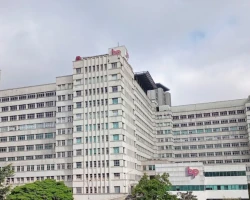
São Paulo, Brazil
Specializations: Cardiac surgery, Thoracic surgery, Neurosurgery, Spine surgery, Orthopedic surgery, Oncology
In an easily accessible region, the Paulista Unit serves more than 50 medical specialties, has a 24-hour emergency room for adults and children and is
read more
5
from Mario Pereira
December 02, 2023
It is an excellent hospital, well located and with a wonderful team. We are always very well attended to, they give us quick solutions with zero bureaucracy. I have been a patient for 4 years and the service is always of the same standard. Whenever I feel something or go straight to this hospital 🏥. It has a restaurant, cafes, 24-hour bank and valet.
2
from Andre Moraes
November 29, 2023
Considered top level. The prompt service leaves a lot to be desired. I passed on 25/Nov/23. In pain, the medical team only did a urine test. When the doctor came to talk, she had to consult a urologist with my request for medication, as I was in pain. In short, an US or CT scan would solve the problem and be accurate. But I had to go to another hospital to find out. BP Mirante for emergency care is too weak.
1
from Beatriz Galvão
November 14, 2023
IS A PREMIUM?!?! JOKE!!
Yesterday I was in the ER and I was outraged by the lack of structure and commitment to the patient.
Only 1 attendant to open a form, 1 person doing the triage, 2 doctors attending all Emergency Rooms, patients being placed in common chairs to be medicated, only 1 nursing assistant to apply all the patients' medications and mismatched information.
I thought that the fact that Mirante has premium service would never be served in this way.
The doctor who attended to me prescribed the same medications I was taking at home, did he think I liked going to the ER for a walk?
While I was in the medication room, I asked the person responsible for the PS, and nurse Bruna came to assist me.
I informed him what was happening and he immediately took action. He transferred my care to a surgeon to analyze me, transferred me to a private place to receive the new prescribed medications, in short, he did everything possible to make my impression change.
The problem is that I wouldn't have needed to complain to receive the service that should have been offered.
I was extremely disappointed with BP Mirante, as it was not what I expected for this service.
Prices for popular procedures:
-
Redo heart surgery
≈ $5,366
-
Off-pump coronary artery bypass surgery
≈ $9,151
-
Temporary pacemaker implantation
≈ $488
-
Percutaneous coronary intervention (PCI) with angioplasty
≈ $3,852
-
Percutaneous coronary intervention (PCI) with stent insertion
≈ $3,481
-
Dual chamber pacemaker insertion
≈ $4,233
-
Coronary artery bypass graft (CABG)
≈ $7,955
-
Heart valve replacement
≈ $8,041
-
Heart valve repair
≈ $8,479
3.9
5 reviews
5
from Mario Pereira
December 02, 2023
It is an excellent hospital, well located and with a wonderful team. We are always very well attended to, they give us quick solutions with zero bureaucracy. I have been a patient for 4 years and the service is always of the same standard. Whenever I feel something or go straight to this hospital 🏥. It has a restaurant, cafes, 24-hour bank and valet.
2
from Andre Moraes
November 29, 2023
Considered top level. The prompt service leaves a lot to be desired. I passed on 25/Nov/23. In pain, the medical team only did a urine test. When the doctor came to talk, she had to consult a urologist with my request for medication, as I was in pain. In short, an US or CT scan would solve the problem and be accurate. But I had to go to another hospital to find out. BP Mirante for emergency care is too weak.
1
from Beatriz Galvão
November 14, 2023
IS A PREMIUM?!?! JOKE!!
Yesterday I was in the ER and I was outraged by the lack of structure and commitment to the patient.
Only 1 attendant to open a form, 1 person doing the triage, 2 doctors attending all Emergency Rooms, patients being placed in common chairs to be medicated, only 1 nursing assistant to apply all the patients' medications and mismatched information.
I thought that the fact that Mirante has premium service would never be served in this way.
The doctor who attended to me prescribed the same medications I was taking at home, did he think I liked going to the ER for a walk?
While I was in the medication room, I asked the person responsible for the PS, and nurse Bruna came to assist me.
I informed him what was happening and he immediately took action. He transferred my care to a surgeon to analyze me, transferred me to a private place to receive the new prescribed medications, in short, he did everything possible to make my impression change.
The problem is that I wouldn't have needed to complain to receive the service that should have been offered.
I was extremely disappointed with BP Mirante, as it was not what I expected for this service.
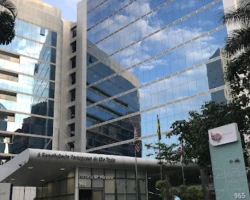
São Paulo, Brazil
Specializations: Cardiac surgery, Thoracic surgery, Neurosurgery, Spine surgery, Orthopedic surgery, Oncology
The BP Mirante offers its customers the latest advances in medical care, in a facility that values discretion and individualized hospitality. Our staff is composed
read more
1
from Juliano Moraes
December 05, 2023
Terrible service, I needed to perform a procedure with anesthesia, I had to ask God and everyone for permission, and on the day of the procedure they said that it wasn't in their documents that there would have to be anesthesia. I had to do the procedure without it and it was horrible.
5
from Corina Porto
November 29, 2023
I had a Coronary Angiotomography on 11/28/23, excellent service since my arrival, the doorman who opened the car door for me to get out, the reception had excellent service, a 10 for the girls at the service and the interview and at the location of the exam I was very well looked after by the Nursing Team and the Doctor who carried out the exam. Mother of God Hospital
Congratulations on the service, excellent.
1
from Cássio Cruz
November 23, 2023
Hospital Mãe de Deus was once a reference hospital in Porto Alegre, but it is currently in terrible condition.
Nursing technicians unprepared to care for people, too long waiting times, information that exam machines - resonance, x-ray, are "damaged" (which would be a reason for delays and rescheduling of exams), structure is very bad (broken tables, beds that don't work), poor hygiene (hospital waste on the floor in the medication room, such as bloody gauze and used cotton), hospitalization schedules are not followed (meals are delivered many hours late to patients ), between others.
Hospital Mãe de Deus currently leaves something to be desired and any possible inspection of minimum requirements should even be able to penalize them.
Relatives of patients talk to each other there and the vast majority are perplexed by what they are doing with Hospital Mãe de Deus, which was once a reference entity.
Currently, Hospital Moinhos de Vento and Complexo da Santa Casa de Porto Alegre are far ahead in every way.
Prices for popular procedures:
-
Redo heart surgery
≈ $5,366
-
Off-pump coronary artery bypass surgery
≈ $9,151
-
Cardiac catheterization
≈ $918
-
Intraaortic balloon pump (IABP) procedure
≈ $1,286
-
Temporary pacemaker implantation
≈ $488
-
Percutaneous coronary intervention (PCI) with angioplasty
≈ $3,852
-
Percutaneous coronary intervention (PCI) with stent insertion
≈ $3,481
-
Dual chamber pacemaker insertion
≈ $4,233
-
Coronary artery bypass graft (CABG)
≈ $7,955
3.6
5 reviews
1
from Juliano Moraes
December 05, 2023
Terrible service, I needed to perform a procedure with anesthesia, I had to ask God and everyone for permission, and on the day of the procedure they said that it wasn't in their documents that there would have to be anesthesia. I had to do the procedure without it and it was horrible.
5
from Corina Porto
November 29, 2023
I had a Coronary Angiotomography on 11/28/23, excellent service since my arrival, the doorman who opened the car door for me to get out, the reception had excellent service, a 10 for the girls at the service and the interview and at the location of the exam I was very well looked after by the Nursing Team and the Doctor who carried out the exam. Mother of God Hospital
Congratulations on the service, excellent.
1
from Cássio Cruz
November 23, 2023
Hospital Mãe de Deus was once a reference hospital in Porto Alegre, but it is currently in terrible condition.
Nursing technicians unprepared to care for people, too long waiting times, information that exam machines - resonance, x-ray, are "damaged" (which would be a reason for delays and rescheduling of exams), structure is very bad (broken tables, beds that don't work), poor hygiene (hospital waste on the floor in the medication room, such as bloody gauze and used cotton), hospitalization schedules are not followed (meals are delivered many hours late to patients ), between others.
Hospital Mãe de Deus currently leaves something to be desired and any possible inspection of minimum requirements should even be able to penalize them.
Relatives of patients talk to each other there and the vast majority are perplexed by what they are doing with Hospital Mãe de Deus, which was once a reference entity.
Currently, Hospital Moinhos de Vento and Complexo da Santa Casa de Porto Alegre are far ahead in every way.
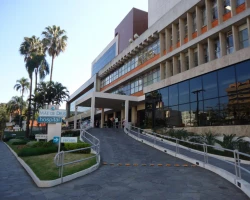
Porto Alegre, Brazil
Specializations: Cardiac surgery, Vascular surgery, Thoracic surgery, Neurosurgery, Spine surgery, Orthopedic surgery, Oncology
Hospital Mãe de Deus has been operating since 1979, offering complete solutions in health, diagnosis and treatment, with a focus on humanized, safe and centralized
read more
5
from Heliezer P R
July 26, 2023
Trusted hospital in Curitiba. I had surgery and their infrastructure is incredible. Everything very clean and organized, waiting rooms and apartment well equipped. The surgery was a success! Meals were served in generous portions with good flavor and temperature. My gratitude to the hospital's surgical team. I've needed their emergency care too, but the staff who go to an elective consultation instead of the emergency itself end up delaying the service (a problem more of the culture of the population than of the hospital), making the waiting time long, but later
service, the professionals provide a great service. I will come back whenever I need to.
5
from Mainak Banerjee
March 24, 2023
Nice one
5
from Jheralthy Richard
May 03, 2021
Top
Prices for popular procedures:
-
Redo heart surgery
≈ $5,366
-
Off-pump coronary artery bypass surgery
≈ $9,151
-
Cardiac catheterization
≈ $918
-
Intraaortic balloon pump (IABP) procedure
≈ $1,286
-
Temporary pacemaker implantation
≈ $488
-
Percutaneous coronary intervention (PCI) with angioplasty
≈ $3,852
-
Percutaneous coronary intervention (PCI) with stent insertion
≈ $3,481
-
Dual chamber pacemaker insertion
≈ $4,233
-
Coronary artery bypass graft (CABG)
≈ $7,955
2.9
5 reviews
5
from Heliezer P R
July 26, 2023
Trusted hospital in Curitiba. I had surgery and their infrastructure is incredible. Everything very clean and organized, waiting rooms and apartment well equipped. The surgery was a success! Meals were served in generous portions with good flavor and temperature. My gratitude to the hospital's surgical team. I've needed their emergency care too, but the staff who go to an elective consultation instead of the emergency itself end up delaying the service (a problem more of the culture of the population than of the hospital), making the waiting time long, but later
service, the professionals provide a great service. I will come back whenever I need to.
5
from Mainak Banerjee
March 24, 2023
Nice one
5
from Jheralthy Richard
May 03, 2021
Top
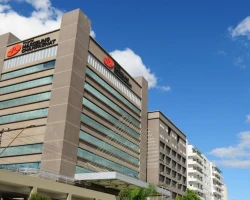
Curitiba, Brazil
Specializations: Cardiac surgery, Vascular surgery, Thoracic surgery, Neurosurgery, Spine surgery, Orthopedic surgery, Oncology
Hospital Marcelino Champagnat was born with the commitment to provide complete care to its patients, with high quality and safety medical principles. For this reason,
read more
3
from Alexis Las Casas
November 25, 2023
I went on 11/22/23 at 11pm something (I don't remember the exact time) with a fever of 40 and discomfort throughout the body, with vomiting. To which they answer that they only attend to emergencies. Only guard is from 8am to 9pm. How can it be that a public hospital has guard duty all day and night and this hospital, which is classified as the best, only has guard duty during certain hours. The person who assists me tells me after I complained that I required medical attention that they would attend to me but I would have to wait at least 4 hours, but that it was safer in 5 hours. With terrible abdominal and body pain, I waited 1 hour and a half and left, to which they wanted to charge me for parking and with a card only. I had cash. But at night it is only with the posnet and you charge yourself. I had to go to the Lomas de San Isidro, and upon seeing my condition, they treated me in 30 minutes, where they referred me to a room and made me
Urgent studies and analysis. They treated me excellently.
Let's see if the hospital commission understands that the patient does not have a stipulated time to feel bad. That is why it is a guard to attend at any time. I know that the word (Guard) has a certain schedule for whoever manages the hospital. I must clarify that the hour of parking is too expensive, the hour costs more than two liters of gasoline. And the car is left out in the open. Also Sometimes to pay for parking there is a long line and there is a delay when you are in the sun or rain without shelter. It should be subsidized. But the greed is greater. I must clarify that the professionals always treated me more than well in the Austral. The issue is They give you shifts with a delay of 2 months. There are never shifts.
3
from Adriana Gargaglione
September 04, 2023
The hospital has excellent doctors. The serious problem that this hospital has is access to medical appointments. A patient has follow-up checks for chronic medication and the SHIFT staff, after several attempts, respond that they do not have appointments for this month and do not know when they will open the agenda for the next one. I go through the application and it doesn't schedule an appointment for that doctor and it tells me to contact me by phone. And as best as you can during your work hours, you keep trying and spend the month with the
Same answer 🤷♀️
It's an epic to get a turn. And an almost impossible challenge to achieve medical follow-up for treatment. How to solve it 🙏🏻? How many more patients are there in this same situation?
A first level hospital has to be able to solve this urgent issue.
5
from Cristian Ferreyra
June 29, 2023
Excellent attention from everyone, from the security person at the entrance, to the receptionists as well as the doctors, who are super professional. They treated me quickly and gave me an accurate diagnosis. There were a lot of people in the waiting room, I thought I wasn't going anymore. But the service is fast, since there are many receptionists and many doctors serving at the same time. The building is beautiful, large, clean, with coffee machines (you can pay with MercadoPago) and some things for breakfast. Highly recommended.
Prices for popular procedures:
-
Redo heart surgery
≈ $19,376
-
Off-pump coronary artery bypass surgery
≈ $17,348
-
Cardiac catheterization
≈ $2,152
-
Intraaortic balloon pump (IABP) procedure
≈ $2,145
-
Coronary artery bypass graft (CABG)
≈ $18,089
-
Heart valve replacement
≈ $25,817
-
Heart valve repair
≈ $22,177
-
Aortic valve replacement (AVR)
≈ $25,050
-
Mitral valve replacement (MVR)
≈ $19,298
3.1
5 reviews
3
from Alexis Las Casas
November 25, 2023
I went on 11/22/23 at 11pm something (I don't remember the exact time) with a fever of 40 and discomfort throughout the body, with vomiting. To which they answer that they only attend to emergencies. Only guard is from 8am to 9pm. How can it be that a public hospital has guard duty all day and night and this hospital, which is classified as the best, only has guard duty during certain hours. The person who assists me tells me after I complained that I required medical attention that they would attend to me but I would have to wait at least 4 hours, but that it was safer in 5 hours. With terrible abdominal and body pain, I waited 1 hour and a half and left, to which they wanted to charge me for parking and with a card only. I had cash. But at night it is only with the posnet and you charge yourself. I had to go to the Lomas de San Isidro, and upon seeing my condition, they treated me in 30 minutes, where they referred me to a room and made me
Urgent studies and analysis. They treated me excellently.
Let's see if the hospital commission understands that the patient does not have a stipulated time to feel bad. That is why it is a guard to attend at any time. I know that the word (Guard) has a certain schedule for whoever manages the hospital. I must clarify that the hour of parking is too expensive, the hour costs more than two liters of gasoline. And the car is left out in the open. Also Sometimes to pay for parking there is a long line and there is a delay when you are in the sun or rain without shelter. It should be subsidized. But the greed is greater. I must clarify that the professionals always treated me more than well in the Austral. The issue is They give you shifts with a delay of 2 months. There are never shifts.
3
from Adriana Gargaglione
September 04, 2023
The hospital has excellent doctors. The serious problem that this hospital has is access to medical appointments. A patient has follow-up checks for chronic medication and the SHIFT staff, after several attempts, respond that they do not have appointments for this month and do not know when they will open the agenda for the next one. I go through the application and it doesn't schedule an appointment for that doctor and it tells me to contact me by phone. And as best as you can during your work hours, you keep trying and spend the month with the
Same answer 🤷♀️
It's an epic to get a turn. And an almost impossible challenge to achieve medical follow-up for treatment. How to solve it 🙏🏻? How many more patients are there in this same situation?
A first level hospital has to be able to solve this urgent issue.
5
from Cristian Ferreyra
June 29, 2023
Excellent attention from everyone, from the security person at the entrance, to the receptionists as well as the doctors, who are super professional. They treated me quickly and gave me an accurate diagnosis. There were a lot of people in the waiting room, I thought I wasn't going anymore. But the service is fast, since there are many receptionists and many doctors serving at the same time. The building is beautiful, large, clean, with coffee machines (you can pay with MercadoPago) and some things for breakfast. Highly recommended.
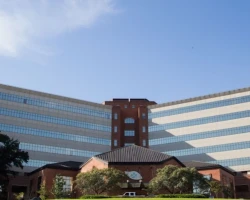
Buenos Aires, Argentina
Specializations: Cardiac surgery, Vascular surgery, Thoracic surgery, Neurosurgery, Spine surgery, Orthopedic surgery, Oncology
Hospital Universitario Austral is a nonprofit organization known for its medical and nursing specialization, the quality of care, its highly specialized tertiary care, its infrastructure
read more
1
from Annie
November 28, 2023
Disgusting unprofessionalism! A child of 11 months arrived at night with a temperature of 39.6.! Doctor looked at baby throat and said it was streptococcus. I was told to do a streptococcus test, to which the doctor said absolute stupidity that it don't do for children!! And she didn't prescribe any treatment! Streptococcus needs to be treated! We have insurance in this hospital, I don't recommend it to anyone! We will leave this hospital!
4
from Grant P
November 07, 2023
I'm a traveler from the US who had a ear pain and needed to see a doctor right away. Most hospitals in the area have bad reviews so it was hard to find some healthcare for myself. Eventually I choose this hospital because people referred me here the most. Went to the emergency room but they directed me to the specalist inside the main building. After registering I needed to pay but they wouldn't accept cash over 10k pesos and i didn't have my credit card with me. So i had to go across the street for a bank deposit. After that i paid and saw the doctor immediately. So in my situation since i saw a specialist that doesnt have many patients i was in and out in about an hour. Im very satisfied with the care i recieved and how prompt everything was despite the language barrier and i dont speak much spanish so Google translate is my buddy. Id recommend this hopsital if you want to be seen faster than a public hospital and are willing to pay. This was a faster and wayyy cheaper experience than in the US. I give this 4 stars because of the bank deposit thing, but otherwise im very pleased 👌
5
from Dina Lukmanova
August 08, 2023
Updating my review cause now I'm a holder of their health insurance and I'm very happy with it. The phone line sucks though, it takes ages to get an answer and then they tend to transfer you to a different department that cuts the call or never answers. It's way faster to go there and ask everything in person.
Prices for popular procedures:
-
Redo heart surgery
≈ $19,376
-
Off-pump coronary artery bypass surgery
≈ $17,348
-
Cardiac catheterization
≈ $2,152
-
Intraaortic balloon pump (IABP) procedure
≈ $2,145
-
Percutaneous coronary intervention (PCI) with angioplasty
≈ $6,066
-
Percutaneous coronary intervention (PCI) with stent insertion
≈ $7,235
-
Coronary artery bypass graft (CABG)
≈ $18,089
-
Heart valve replacement
≈ $25,817
-
Heart valve repair
≈ $22,177
3.2
5 reviews
1
from Annie
November 28, 2023
Disgusting unprofessionalism! A child of 11 months arrived at night with a temperature of 39.6.! Doctor looked at baby throat and said it was streptococcus. I was told to do a streptococcus test, to which the doctor said absolute stupidity that it don't do for children!! And she didn't prescribe any treatment! Streptococcus needs to be treated! We have insurance in this hospital, I don't recommend it to anyone! We will leave this hospital!
4
from Grant P
November 07, 2023
I'm a traveler from the US who had a ear pain and needed to see a doctor right away. Most hospitals in the area have bad reviews so it was hard to find some healthcare for myself. Eventually I choose this hospital because people referred me here the most. Went to the emergency room but they directed me to the specalist inside the main building. After registering I needed to pay but they wouldn't accept cash over 10k pesos and i didn't have my credit card with me. So i had to go across the street for a bank deposit. After that i paid and saw the doctor immediately. So in my situation since i saw a specialist that doesnt have many patients i was in and out in about an hour. Im very satisfied with the care i recieved and how prompt everything was despite the language barrier and i dont speak much spanish so Google translate is my buddy. Id recommend this hopsital if you want to be seen faster than a public hospital and are willing to pay. This was a faster and wayyy cheaper experience than in the US. I give this 4 stars because of the bank deposit thing, but otherwise im very pleased 👌
5
from Dina Lukmanova
August 08, 2023
Updating my review cause now I'm a holder of their health insurance and I'm very happy with it. The phone line sucks though, it takes ages to get an answer and then they tend to transfer you to a different department that cuts the call or never answers. It's way faster to go there and ask everything in person.
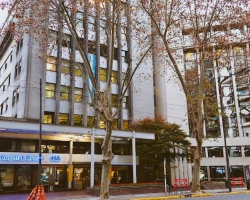
Buenos Aires, Argentina
Specializations: Cardiac surgery, Vascular surgery, Thoracic surgery, Neurosurgery, Spine surgery, Orthopedic surgery, Oncology
In the Autonomous City of Buenos Aires, the German Hospital stands as a Health Center recognized for its prestige and its history, remaining at the
read more
1
from kmindahouse
December 06, 2023
Good hospital but total inflated prices, they charge so high that they reach above the TOPE of your insurance. For a small one - hour surgery, they charge 7 million CLP
2
from Emmet Dunne
May 21, 2022
“Urgencia” doesn’t move with much urgency. I’m currently in the waiting room in the respiratory area of the emergency department. My mother in law arrived in bad condition and I saw no sign of triage or prioritization based on symptoms , first come first served.
NONE of the alcohol hand dispensers have alcohol, staff aren’t using alcohol gel. Not just in the emergency area but also in the other buildings I passed through.
Very surprised by the experience considering the cost and reputation of the hospital. Go to Clinica San Carlos de Apoquindo UC or Clínica Alemán.
5
from Peter Sexton
May 17, 2021
I had a severe reaction to a Lyme disease infection contracted in the USA, that manifested itself when I arrived. I was hospitalized at Clinica Los Condes for 3 days. The care was superb. Since Lyme disease does not exist in Chile, the staff coordinated their care for me in coordination with the USA CDC.
Prices for popular procedures:
-
Redo heart surgery
≈ $16,060
-
Off-pump coronary artery bypass surgery
≈ $13,489
-
Cardiac catheterization
≈ $1,241
-
Intraaortic balloon pump (IABP) procedure
≈ $1,243
-
Temporary pacemaker implantation
≈ $525
-
Percutaneous coronary intervention (PCI) with angioplasty
≈ $3,963
-
Percutaneous coronary intervention (PCI) with stent insertion
≈ $5,780
-
Dual chamber pacemaker insertion
≈ $5,498
-
Coronary artery bypass graft (CABG)
≈ $14,991
3.5
5 reviews
1
from kmindahouse
December 06, 2023
Good hospital but total inflated prices, they charge so high that they reach above the TOPE of your insurance. For a small one - hour surgery, they charge 7 million CLP
2
from Emmet Dunne
May 21, 2022
“Urgencia” doesn’t move with much urgency. I’m currently in the waiting room in the respiratory area of the emergency department. My mother in law arrived in bad condition and I saw no sign of triage or prioritization based on symptoms , first come first served.
NONE of the alcohol hand dispensers have alcohol, staff aren’t using alcohol gel. Not just in the emergency area but also in the other buildings I passed through.
Very surprised by the experience considering the cost and reputation of the hospital. Go to Clinica San Carlos de Apoquindo UC or Clínica Alemán.
5
from Peter Sexton
May 17, 2021
I had a severe reaction to a Lyme disease infection contracted in the USA, that manifested itself when I arrived. I was hospitalized at Clinica Los Condes for 3 days. The care was superb. Since Lyme disease does not exist in Chile, the staff coordinated their care for me in coordination with the USA CDC.
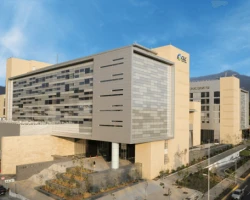
Santiago, Chile
Specializations: Cardiac surgery, Vascular surgery, Thoracic surgery, Neurosurgery, Spine surgery, Orthopedic surgery, Oncology
Languages: English
Las Condes Clinic was inaugurated in 1982 with the best quality standards, excellent medical equipment and state-of-the-art technology. The project was conceived with the purpose
read more
5
from Becky Yep
November 28, 2023
We unfortunately had a five night stay at the NICU over the Thanksgiving holiday. The staff provided excellent care to our kid and were extremely compassionate to us as parents. We were grateful for the private sleep rooms and shower, and they even had a free Thanksgiving dinner for everyone. The parent / family lounges have places to grab coffee and store food, and everything is very clean and organized. The doctors and nurses were very communicative and kept us in the loop the entire time.
1
from Tierra Cooper
November 21, 2023
Absolute terrible service , my child who has a seizure disorder and potential c- diff was made to wait in the ER for 3 and half hours plus without even being properly triaged . She didn’t receive a wrist band , at any point & we can run the cameras back , no one was alerted to her allergies , there was no band received for that as it typically is .. and she begin to have diarrhea thru the long wait due to the virus she’s had the past week and in turn she begin to get worked up and her fever returned . I asked how much longer the wait would be abd for an approximate timeline .. as I’ve observed plenty of patents come in after one in which I knew personally with less servere circumstances… literally come and go and my child was still suffering in the ER … the Nurse on duty was unaccomidating and almost seemingly unwilling to engage .. as I waited for some kind of answer on when my severely sick child would be seen . I asked if it would be more then another 30 mins and he said he couldn’t promise but shouldn’t be . Well it was . After 45 mins of them calling more then 3 patients who arrived after us .. I reluctantly decided it best to take my fevering , baby who now was covered in feces home.. as she was in her 3rd bowel movement and we had difficulty changing her in the nasty public restroom . I ultimately watched them call two more patients who had come after us exhibiting no signs of eminite health scares then I ordered our ride so I could take my child home to change her and give her medicine to help reduce fever and prevent seizure . I am pissed and very upset that my child and I spent. 3 plus hours we can’t get back in the ER after already being across the street at the Berger building for 3 hours prior this was wayy less then pleasant
This is the second poor experience in this particular Emergency Dept but this is the first time it was so horribly handled that I had to leave with not only an even sicker baby then I arrived with . She still now will have to go to another ER to be seen .. because she did infact have a seizure once we got home from her fever that arose& I informed them but that did nothing to medicate the situation or get her seen. Now my kid is home fevering still sick potentially has c-diff and I am skeptical to return her to this terrible hospital because they haven’t even returned my call. I called to speak with charge nurse after filing formal complaint and was told by Jennifer in WR I could not speak to any charge nurse and then she took my information and said a nurse on duty would call back and it’s been an hour with out a returned call. This is negligence and unprofessionalism tht promoted us to leave in the first place and CHOP is looking at a pretty decent lawsuit if we do go to another practice and something is severely wrong with my child with so much documented instances of me trying to get her helper seen and have a team leader consult about next steps. This place wasted my time , cash as it’s costed money I didn’t have to travel to and from and I felt like the poor treatment was racially motivated , as as kid who came in after us was pulled to the back cuz her mother told them she was seizing but I was looking at the child. Who literally just had woke out her sleep. This place is incompetent , and of all the amazing experiences we’ve had here . Today ultimately casted a shadow on them all and I will be contacting the PA board of insurance aswell to file a formal complaint because they need to do better on managing and transparency in the ER wait times. We got there at 12:15 and didn’t receive a text saying my child’s room was ready until 4:15 pm that’s 4 freaking hours for a child who had 2 seizures in past week, has a virus, and cold and caught fever while there … when she has a history of febrile seizures … 0/10 would not recommend. Shame on u all
5
from Joshua Perry
November 16, 2023
Very friendly staff and amazing doctors. The information desk is very helpful. The front lobby is well designed and honestly fun to be in due to it's design: there is a meandering ramp that goes up several stories with interesting interactive stops on the way. The lobbies on each floor are also all well laid out: they have great views outside and inside were designed with children and comfort in mind. The plaza out front and the cafeteria/Cafe are both relaxing places to recharge.
Prices for popular procedures:
-
Cardiac catheterization
≈ $9,925
-
Intraaortic balloon pump (IABP) procedure
≈ $15,146
-
Temporary pacemaker implantation
≈ $5,650
-
Dual chamber pacemaker insertion
≈ $37,343
-
Heart valve replacement
≈ $100,236
-
Heart valve repair
≈ $97,775
-
Aortic valve replacement (AVR)
≈ $151,045
-
Mitral valve replacement (MVR)
≈ $38,590
-
Transcatheter aortic valve replacement (TAVR)
≈ $97,020
4.1
5 reviews
5
from Becky Yep
November 28, 2023
We unfortunately had a five night stay at the NICU over the Thanksgiving holiday. The staff provided excellent care to our kid and were extremely compassionate to us as parents. We were grateful for the private sleep rooms and shower, and they even had a free Thanksgiving dinner for everyone. The parent / family lounges have places to grab coffee and store food, and everything is very clean and organized. The doctors and nurses were very communicative and kept us in the loop the entire time.
1
from Tierra Cooper
November 21, 2023
Absolute terrible service , my child who has a seizure disorder and potential c- diff was made to wait in the ER for 3 and half hours plus without even being properly triaged . She didn’t receive a wrist band , at any point & we can run the cameras back , no one was alerted to her allergies , there was no band received for that as it typically is .. and she begin to have diarrhea thru the long wait due to the virus she’s had the past week and in turn she begin to get worked up and her fever returned . I asked how much longer the wait would be abd for an approximate timeline .. as I’ve observed plenty of patents come in after one in which I knew personally with less servere circumstances… literally come and go and my child was still suffering in the ER … the Nurse on duty was unaccomidating and almost seemingly unwilling to engage .. as I waited for some kind of answer on when my severely sick child would be seen . I asked if it would be more then another 30 mins and he said he couldn’t promise but shouldn’t be . Well it was . After 45 mins of them calling more then 3 patients who arrived after us .. I reluctantly decided it best to take my fevering , baby who now was covered in feces home.. as she was in her 3rd bowel movement and we had difficulty changing her in the nasty public restroom . I ultimately watched them call two more patients who had come after us exhibiting no signs of eminite health scares then I ordered our ride so I could take my child home to change her and give her medicine to help reduce fever and prevent seizure . I am pissed and very upset that my child and I spent. 3 plus hours we can’t get back in the ER after already being across the street at the Berger building for 3 hours prior this was wayy less then pleasant
This is the second poor experience in this particular Emergency Dept but this is the first time it was so horribly handled that I had to leave with not only an even sicker baby then I arrived with . She still now will have to go to another ER to be seen .. because she did infact have a seizure once we got home from her fever that arose& I informed them but that did nothing to medicate the situation or get her seen. Now my kid is home fevering still sick potentially has c-diff and I am skeptical to return her to this terrible hospital because they haven’t even returned my call. I called to speak with charge nurse after filing formal complaint and was told by Jennifer in WR I could not speak to any charge nurse and then she took my information and said a nurse on duty would call back and it’s been an hour with out a returned call. This is negligence and unprofessionalism tht promoted us to leave in the first place and CHOP is looking at a pretty decent lawsuit if we do go to another practice and something is severely wrong with my child with so much documented instances of me trying to get her helper seen and have a team leader consult about next steps. This place wasted my time , cash as it’s costed money I didn’t have to travel to and from and I felt like the poor treatment was racially motivated , as as kid who came in after us was pulled to the back cuz her mother told them she was seizing but I was looking at the child. Who literally just had woke out her sleep. This place is incompetent , and of all the amazing experiences we’ve had here . Today ultimately casted a shadow on them all and I will be contacting the PA board of insurance aswell to file a formal complaint because they need to do better on managing and transparency in the ER wait times. We got there at 12:15 and didn’t receive a text saying my child’s room was ready until 4:15 pm that’s 4 freaking hours for a child who had 2 seizures in past week, has a virus, and cold and caught fever while there … when she has a history of febrile seizures … 0/10 would not recommend. Shame on u all
5
from Joshua Perry
November 16, 2023
Very friendly staff and amazing doctors. The information desk is very helpful. The front lobby is well designed and honestly fun to be in due to it's design: there is a meandering ramp that goes up several stories with interesting interactive stops on the way. The lobbies on each floor are also all well laid out: they have great views outside and inside were designed with children and comfort in mind. The plaza out front and the cafeteria/Cafe are both relaxing places to recharge.
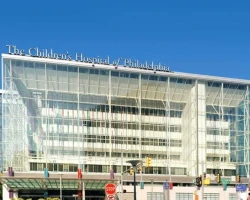
Philadelphia, United States
Specializations: Cardiac surgery, Vascular surgery, Thoracic surgery, Neurosurgery, Spine surgery, Orthopedic surgery, Oncology
Languages: Arabic, French, Spanish; Castilian
Children's Hospital of Philadelphia (CHOP) is the nation's first hospital devoted exclusively to the care of children. Since our start in 1855, CHOP has been
read more
5
from Puac
November 27, 2023
My brother was in this hospital because he had appendicitis and had to get surgery and He said the nurse was nice! I think this place is really nice because it's clean and Its nice looking, I know that because I was there to visit him in the hospital. I also want to thank you for saving my Brother before more consequences happened to him and that he could've died.. but thank God this hospital was there! Once again, thank you for saving him🙏🤍 Also I definitely Recommend this place if you want nice doctors and want to feel less anxious and comfortable here.👍
1
from B Rosales
November 01, 2023
This hospital isn't what it used to be! It seems to be loosing patient focus and fast. We've been a CHLA family for 11 years and I think it's time to switch. My autistic son was SCHEDULED for Dental Surgery. Originally it was supposed to be at 1pm and us be here at 11am. When we got the call from the nurse last night that we needed to be here at 530 AM we were like no one told us! But we got here right on time. We'll let me tell you that they took him upstairs to Surgery PreOp it took over 4 hours to get him into the the surgery room, because he needed to be admitted after surgery and no beds were available. This hospital needs to have better planning for these types of things OBVIOUSLY there will be emergencies that come in over night THAT SHOULD'VE ALREADY BEEN ACCOUNTED FOR!!! Maybe you need more staff and more beds!!! Because to have a child basically starving because you couldn't plan Accordingly is just plainly ridiculous! Then when I spoke to the Charge Nurse in the Surgery Dept she tells me that if my autistic son has an outburst that the anesthesiologist and nurse are there to help give him something to calm down. So basically if my son has an autistic outburst they will just drug him up. I'm like realistically drugging my son just to calm him down because your hospital didn't plan accordingly is uncalled for and unnecessary! Again I am seriously contemplating switching hospitals even though my son is on the Heart Transplant List!!! -A Frustrated Autistic Heart Mom
5
from yvette patil
October 24, 2023
Ok so I had open heart surgery 20 years ago. I was well cared for and was in icu for three days and then went to a step down room where I was later discharged home after only three days at the hospital. My team was so amazing and so supportive and loving. And a picture of me twenty years later.
Prices for popular procedures:
-
Cardiac catheterization
≈ $9,925
-
Intraaortic balloon pump (IABP) procedure
≈ $15,146
-
Temporary pacemaker implantation
≈ $5,650
-
Dual chamber pacemaker insertion
≈ $37,343
-
Heart valve replacement
≈ $100,236
-
Heart valve repair
≈ $97,775
-
Aortic valve replacement (AVR)
≈ $151,045
-
Mitral valve replacement (MVR)
≈ $38,590
-
Transcatheter aortic valve replacement (TAVR)
≈ $97,020
3.9
5 reviews
5
from Puac
November 27, 2023
My brother was in this hospital because he had appendicitis and had to get surgery and He said the nurse was nice! I think this place is really nice because it's clean and Its nice looking, I know that because I was there to visit him in the hospital. I also want to thank you for saving my Brother before more consequences happened to him and that he could've died.. but thank God this hospital was there! Once again, thank you for saving him🙏🤍 Also I definitely Recommend this place if you want nice doctors and want to feel less anxious and comfortable here.👍
1
from B Rosales
November 01, 2023
This hospital isn't what it used to be! It seems to be loosing patient focus and fast. We've been a CHLA family for 11 years and I think it's time to switch. My autistic son was SCHEDULED for Dental Surgery. Originally it was supposed to be at 1pm and us be here at 11am. When we got the call from the nurse last night that we needed to be here at 530 AM we were like no one told us! But we got here right on time. We'll let me tell you that they took him upstairs to Surgery PreOp it took over 4 hours to get him into the the surgery room, because he needed to be admitted after surgery and no beds were available. This hospital needs to have better planning for these types of things OBVIOUSLY there will be emergencies that come in over night THAT SHOULD'VE ALREADY BEEN ACCOUNTED FOR!!! Maybe you need more staff and more beds!!! Because to have a child basically starving because you couldn't plan Accordingly is just plainly ridiculous! Then when I spoke to the Charge Nurse in the Surgery Dept she tells me that if my autistic son has an outburst that the anesthesiologist and nurse are there to help give him something to calm down. So basically if my son has an autistic outburst they will just drug him up. I'm like realistically drugging my son just to calm him down because your hospital didn't plan accordingly is uncalled for and unnecessary! Again I am seriously contemplating switching hospitals even though my son is on the Heart Transplant List!!! -A Frustrated Autistic Heart Mom
5
from yvette patil
October 24, 2023
Ok so I had open heart surgery 20 years ago. I was well cared for and was in icu for three days and then went to a step down room where I was later discharged home after only three days at the hospital. My team was so amazing and so supportive and loving. And a picture of me twenty years later.
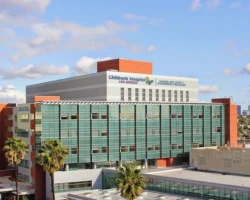
Los Angeles, United States
Specializations: Cardiac surgery, Vascular surgery, Thoracic surgery, Neurosurgery, Spine surgery, Orthopedic surgery, Oncology
Languages: Spanish; Castilian
Children’s Hospital Los Angeles is one of the nation’s leading pediatric hospitals. True to our mission, we have been creating hope and building healthier futures
read more
3
from Tola Idemudia
October 21, 2023
My husband and I rushed our son to the hospital last week cos he had a seizure. It was at midnight and they had just one doctor attending to so many people before us so we had to wait for about 7hrs.
We were attended to in-between by nurses but the last nurse who came to us started asking some questions that we had already answered over and over again but before she started, she looked at both my husband and I and asked “which one of u can communicate with me better?” We didn’t understand what that meant so my husband asked “what do you mean?” And she said “I need to ask a few questions to whichever one of you can communicate with me better in English”
I couldn’t speak out of shock, my husband just walked out of the room cos he didn’t want to get upset, she asked the questions again before I could bring myself to answer her. This was after 6hours of waiting for a doctor.
Shortly after, a doctor came in, we were attended to and we left there.
The other nurses were sweet but I was disgusted by that nurse thinking we used to live in trees and caves and only spoke gugugaga before coming to Canada.
5
from Tanvir Khan
August 04, 2023
ACH is so nice that makes me being a kid again, minus sickness. This was my first visit at ACH for my son and we enjoyed the environment.
5
from David Seney
July 18, 2023
My son had a very long procedure done in endocrinology, and the nurses there were awesome! They gave my son $15 Apple card for good behavior😄
Prices for popular procedures:
-
Cardiac catheterization
≈ $7,179
-
Intraaortic balloon pump (IABP) procedure
≈ $8,986
-
Temporary pacemaker implantation
≈ $2,035
-
Dual chamber pacemaker insertion
≈ $16,337
-
Permanent pacemaker implantation
≈ $17,341
-
Percutaneous ASD closure
≈ $22,435
-
Percutaneous closure of ventricular septal defect (VSD)
≈ $21,224
-
Coronary catheterization
≈ $3,856
-
Open pulmonary valvotomy
≈ $34,131
3.4
5 reviews
3
from Tola Idemudia
October 21, 2023
My husband and I rushed our son to the hospital last week cos he had a seizure. It was at midnight and they had just one doctor attending to so many people before us so we had to wait for about 7hrs.
We were attended to in-between by nurses but the last nurse who came to us started asking some questions that we had already answered over and over again but before she started, she looked at both my husband and I and asked “which one of u can communicate with me better?” We didn’t understand what that meant so my husband asked “what do you mean?” And she said “I need to ask a few questions to whichever one of you can communicate with me better in English”
I couldn’t speak out of shock, my husband just walked out of the room cos he didn’t want to get upset, she asked the questions again before I could bring myself to answer her. This was after 6hours of waiting for a doctor.
Shortly after, a doctor came in, we were attended to and we left there.
The other nurses were sweet but I was disgusted by that nurse thinking we used to live in trees and caves and only spoke gugugaga before coming to Canada.
5
from Tanvir Khan
August 04, 2023
ACH is so nice that makes me being a kid again, minus sickness. This was my first visit at ACH for my son and we enjoyed the environment.
5
from David Seney
July 18, 2023
My son had a very long procedure done in endocrinology, and the nurses there were awesome! They gave my son $15 Apple card for good behavior😄
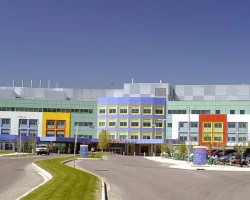
Calgary, Canada
Specializations: Cardiac surgery, Vascular surgery, Thoracic surgery, Neurosurgery, Spine surgery, Orthopedic surgery, Oncology
Languages: French
Alberta Health Services (AHS) is proud to be part of Canada’s first and largest provincewide, fully integrated health system, responsible for delivering health services to
read more
5
from J L
June 09, 2023
I found some english speaking doctors here and they have an international office to help you translate if you dont speak spanish. Thank you very much Carolina 🙏
1
from Martin Stettler
February 02, 2023
Horrible! Dont go to this clinic. The most unfriendly employees I have experienced in this Hospital. Yes I do speak spanish but once I didnt understand smth the lady just ignored me!
Errors start already in front of the Clinic. Apparently they don't know the difference between a Swiss flag and a medical (red!!!) cross. So my question: is this a Swiss Clinic??? Of course not...
5
from A R
September 17, 2022
My mom got a well planned surgery in this Clinic. Excellent outstanding service what a relief. Fast service, very diligent and well trained all staff. Great place to get well and get some recovery. If you get sick go there you will be fine quickly. Do not visit Los Nogales clinic or La Colina. Marly is the best! Thank you all for your service! Mom is doing great. The doctor was very profesional!
Prices for popular procedures:
-
Redo heart surgery
≈ $17,649
-
Off-pump coronary artery bypass surgery
≈ $13,752
-
Cardiac catheterization
≈ $1,919
-
Intraaortic balloon pump (IABP) procedure
≈ $1,608
-
Percutaneous coronary intervention (PCI) with angioplasty
≈ $7,753
-
Percutaneous coronary intervention (PCI) with stent insertion
≈ $7,579
-
Coronary artery bypass graft (CABG)
≈ $13,176
-
Heart valve replacement
≈ $12,955
-
Heart valve repair
≈ $17,019
3.3
5 reviews
5
from J L
June 09, 2023
I found some english speaking doctors here and they have an international office to help you translate if you dont speak spanish. Thank you very much Carolina 🙏
1
from Martin Stettler
February 02, 2023
Horrible! Dont go to this clinic. The most unfriendly employees I have experienced in this Hospital. Yes I do speak spanish but once I didnt understand smth the lady just ignored me!
Errors start already in front of the Clinic. Apparently they don't know the difference between a Swiss flag and a medical (red!!!) cross. So my question: is this a Swiss Clinic??? Of course not...
5
from A R
September 17, 2022
My mom got a well planned surgery in this Clinic. Excellent outstanding service what a relief. Fast service, very diligent and well trained all staff. Great place to get well and get some recovery. If you get sick go there you will be fine quickly. Do not visit Los Nogales clinic or La Colina. Marly is the best! Thank you all for your service! Mom is doing great. The doctor was very profesional!
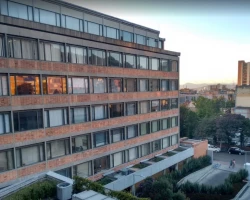
Bogota, Colombia
Specializations: Cardiac surgery, Vascular surgery, Thoracic surgery, Neurosurgery, Spine surgery, Orthopedic surgery, Oncology
Languages: English
The Marly Clinic began its activities at the beginning of 1903 with Dr. Carlos Esguerra as Director. The Marly Clinic is today the oldest and
read more
Clinics grouping by rating
Clinic with the highest rating of 5 — New Brunswick Heart Centre in Saint John, Canada, clinic with the most reviews number of 4938 — Hospital São Camilo Pompeia in São Paulo, Brazil.
With rating 4.0 and over — 66 clinics .
Countries with the highest number of clinics treating the diseases:
Myocardial infarction (MI):
worldwide
773 clinics
Brazil
47 clinics
Germany
44 clinics
India
40 clinics
Mexico
33 clinics
Colombia
32 clinics
Related procedures:
Procedures are likely to be used for Myocardial infarction (MI) treatment:
Cardiac catheterization,
Intraaortic balloon pump (IABP) procedure,
Intracardiac echocardiography (ICE),
Off-pump coronary artery bypass surgery,
and
Percutaneous coronary intervention (PCI) with angioplasty
.
Quick navigation
Procedures
Diseases
- Balloon angioplasty and stenting of aorta coarctation $524 - $51,493
- Cardiac catheterization $918 - $9,925
- Coarctectomy in children $2,266 - $76,680
- Coil embolization of intracardiac shunts and fistulas $2,115 - $31,741
- Extracorporeal membrane oxygenation (ECMO) ≈ $1,131,510
- Heart tumor surgery $6,698 - $73,060
- Intraaortic balloon pump (IABP) procedure $1,243 - $256,865
- Left atrial appendage occlusion $5,556 - $163,295
- MAZE procedure $4,911 - $166,340
- Minimally invasive valvular heart surgery with valve repair or replacement by request
- NobleStitch™ PFO closure procedure by request
- Open-heart intracardiac foreign body removal $6,109 - $102,052
- Patent ductus arteriosus (PDA) open heart surgery in adults $2,082 - $45,319
- Percutaneous ASD closure $3,709 - $163,295
- Percutaneous closure of ventricular septal defect (VSD) $4,865 - $163,295
- Rashkind procedure $420 - $39,229
- Surgery for tetralogy of Fallot (TOF) in adults $5,447 - $58,384
- Surgical ventricular restoration (SVR) $8,437 - $78,568
- Transcatheter closure of patent ductus arteriosus (PDA) in adults $1,996 - $45,374
- Ventricular septal defect (VSD) repair $2,994 - $29,964
- Aortic valve insufficiency
- Aortic valve stenosis
- Atrial fibrillation (AFib)
- Coarctation of the aorta (CoA)
- Foreign bodies in the heart
- Heart failure
- Heart tumor
- Heart valve disease
- Mitral valve insufficiency
- Mitral valve stenosis
- Multivalvular disease
- Myocardial infarction (MI)
- Pneumonia
- Pulmonary hypertension
- Sinus of valsalva aneurysm (SOVA)
- Tricuspid valve insufficiency
- Tricuspid valve stenosis
- Valvular insufficiency
- Ventricular aneurysm
- Ventricular septal rupture (VSR)
